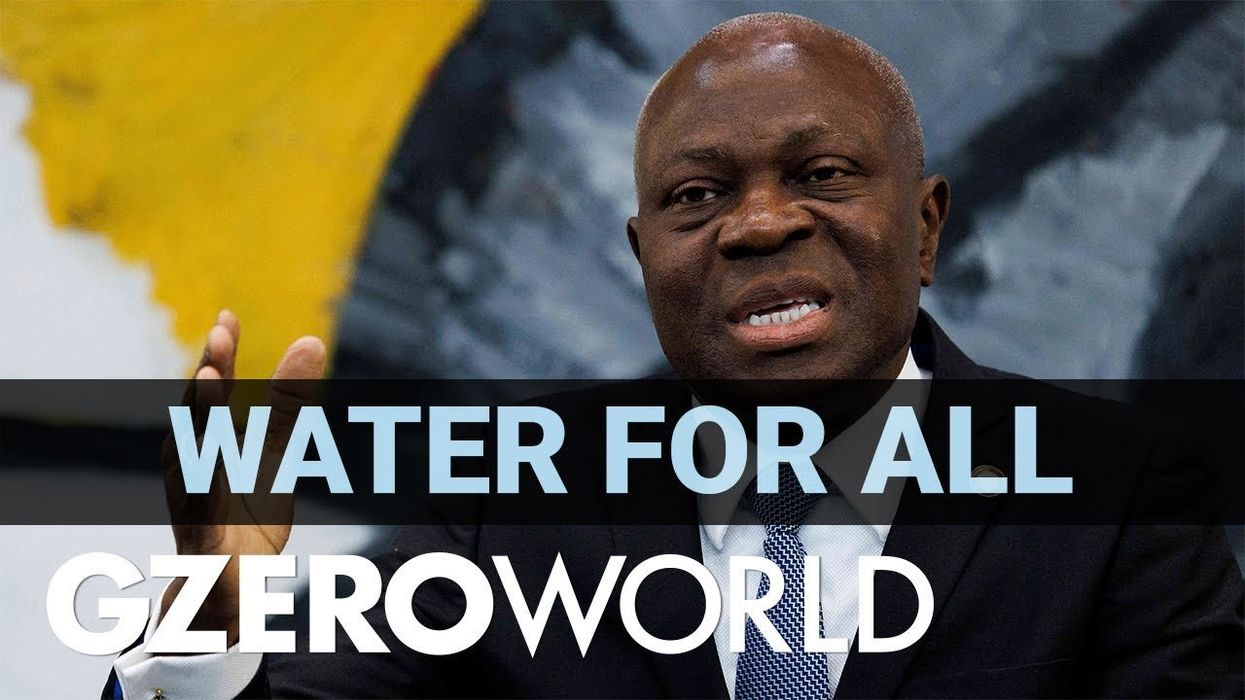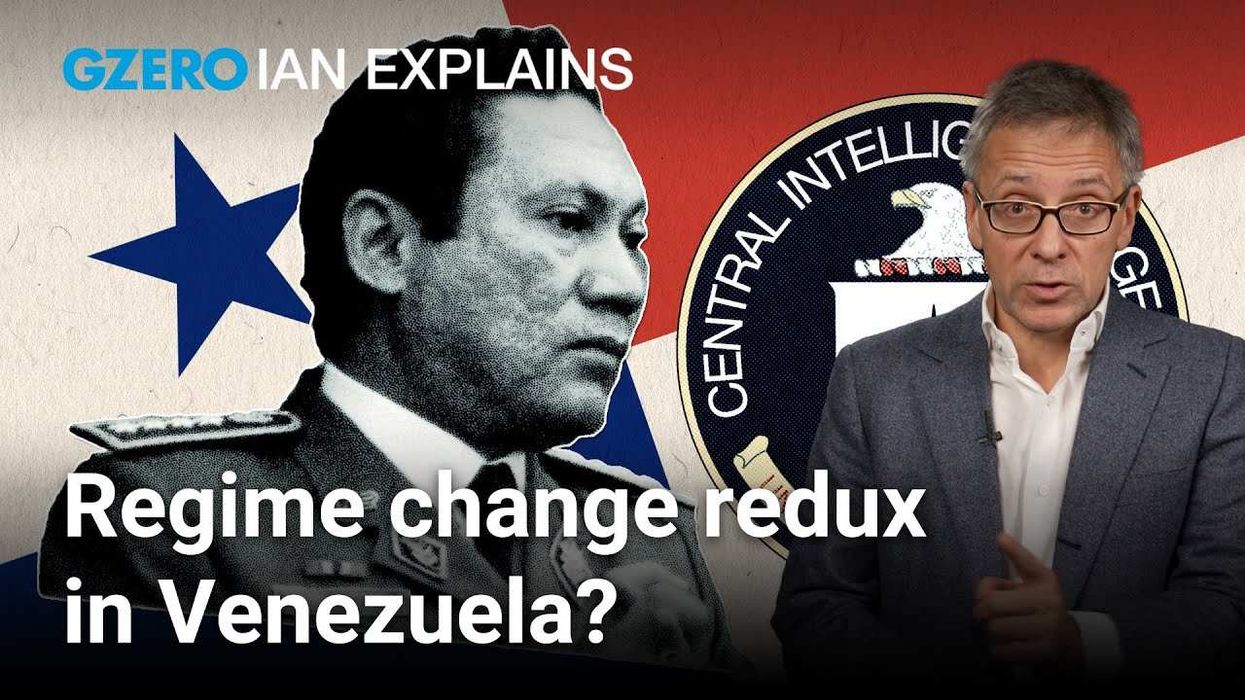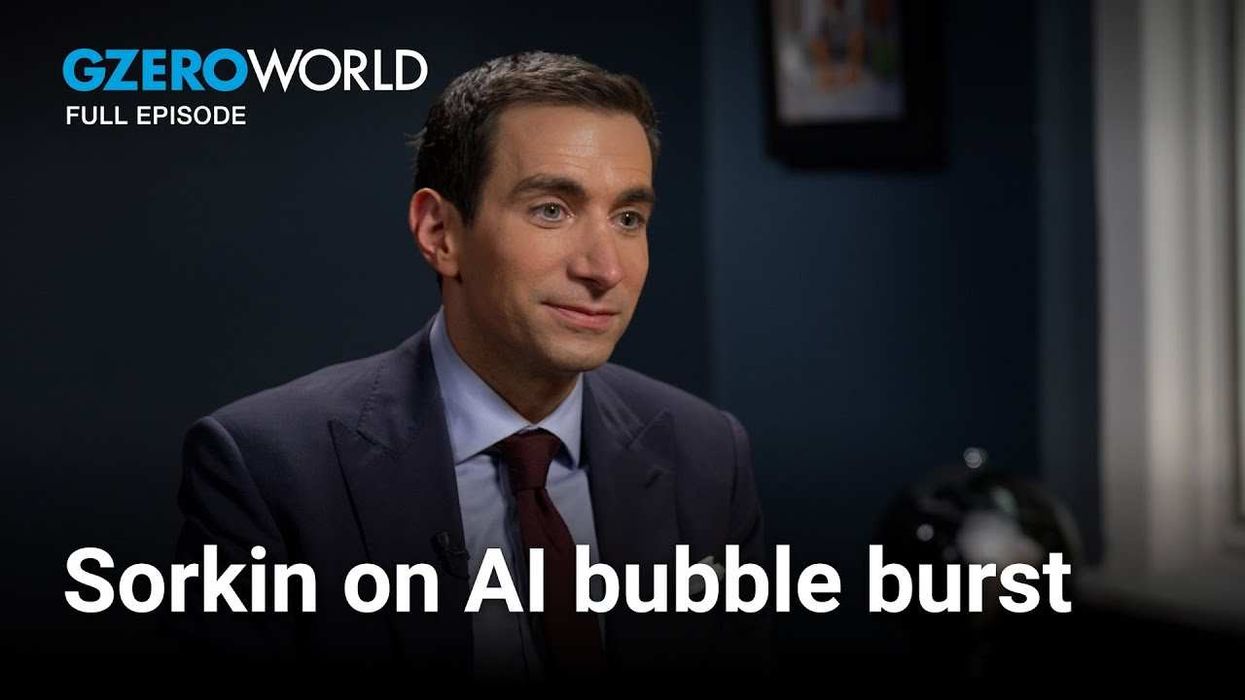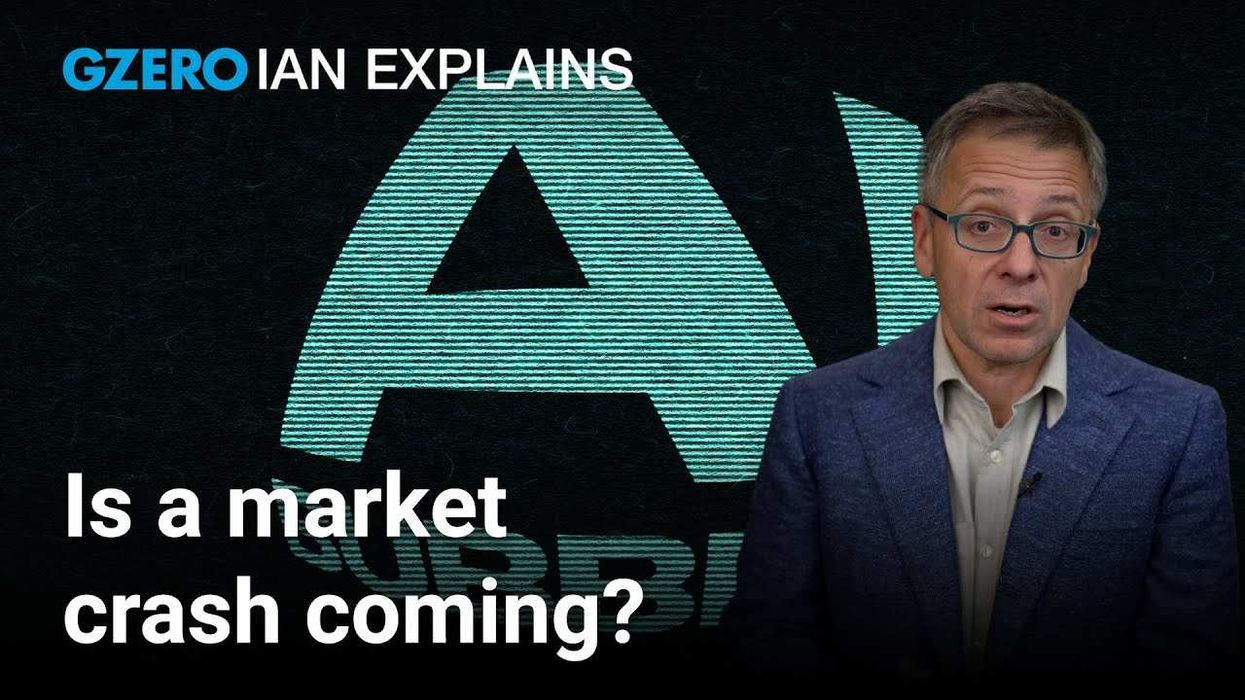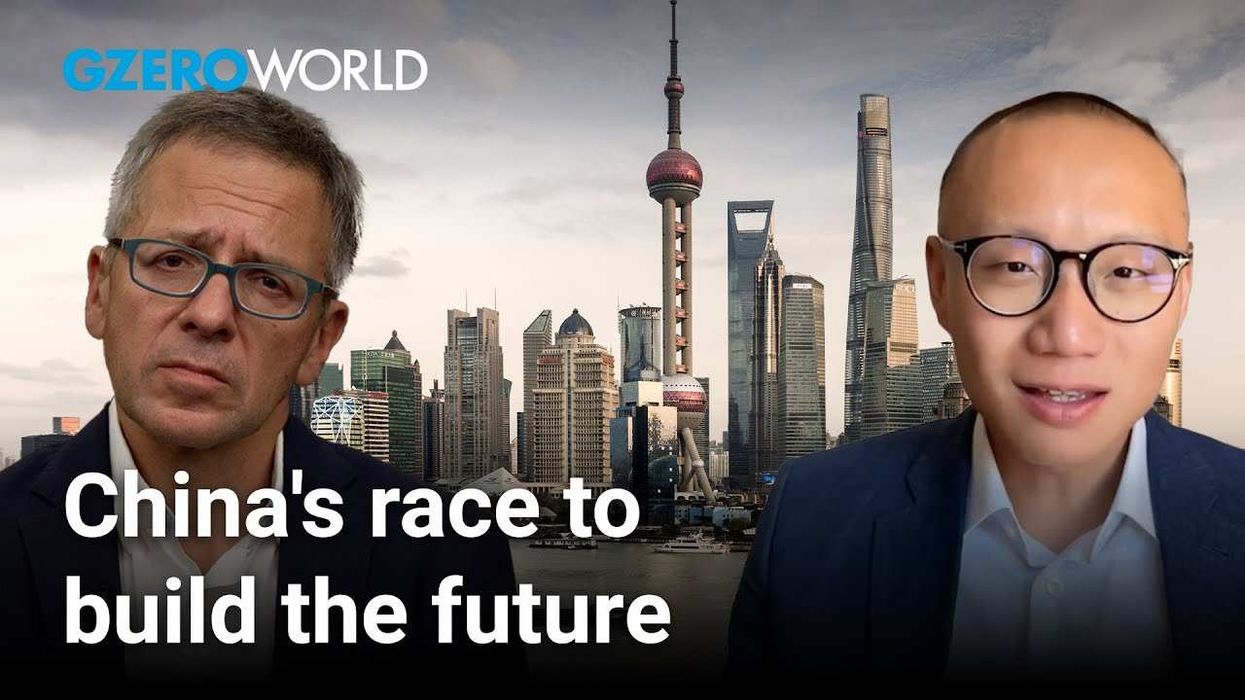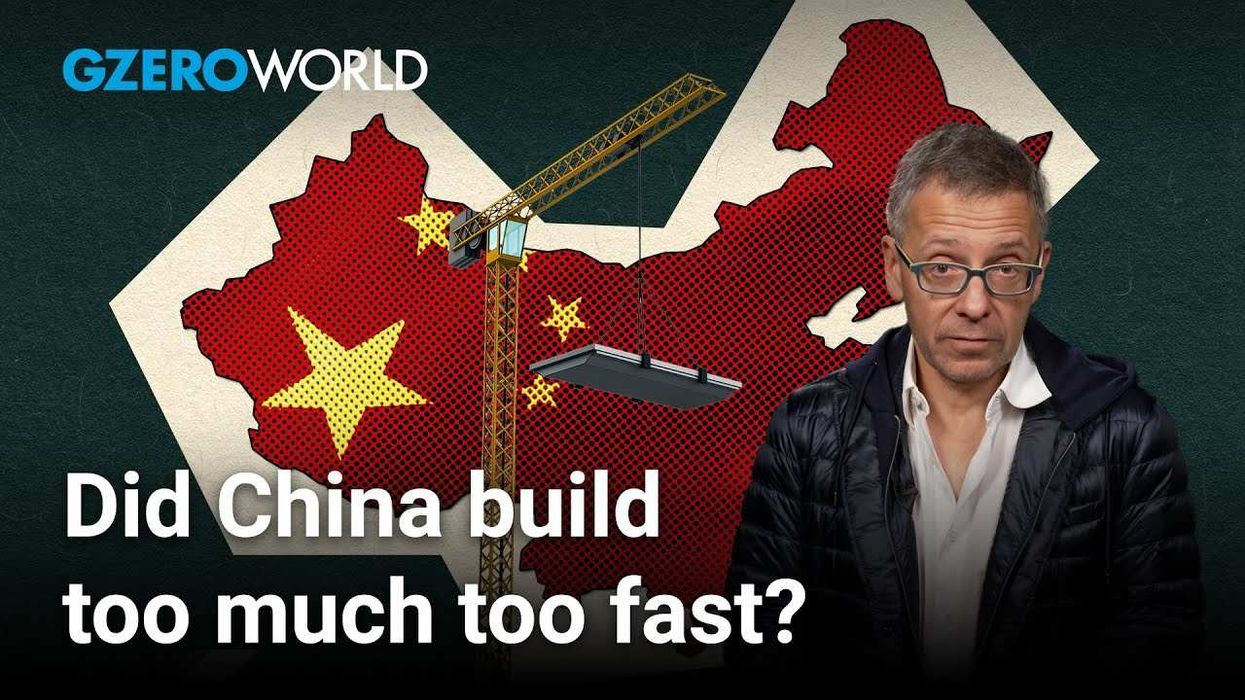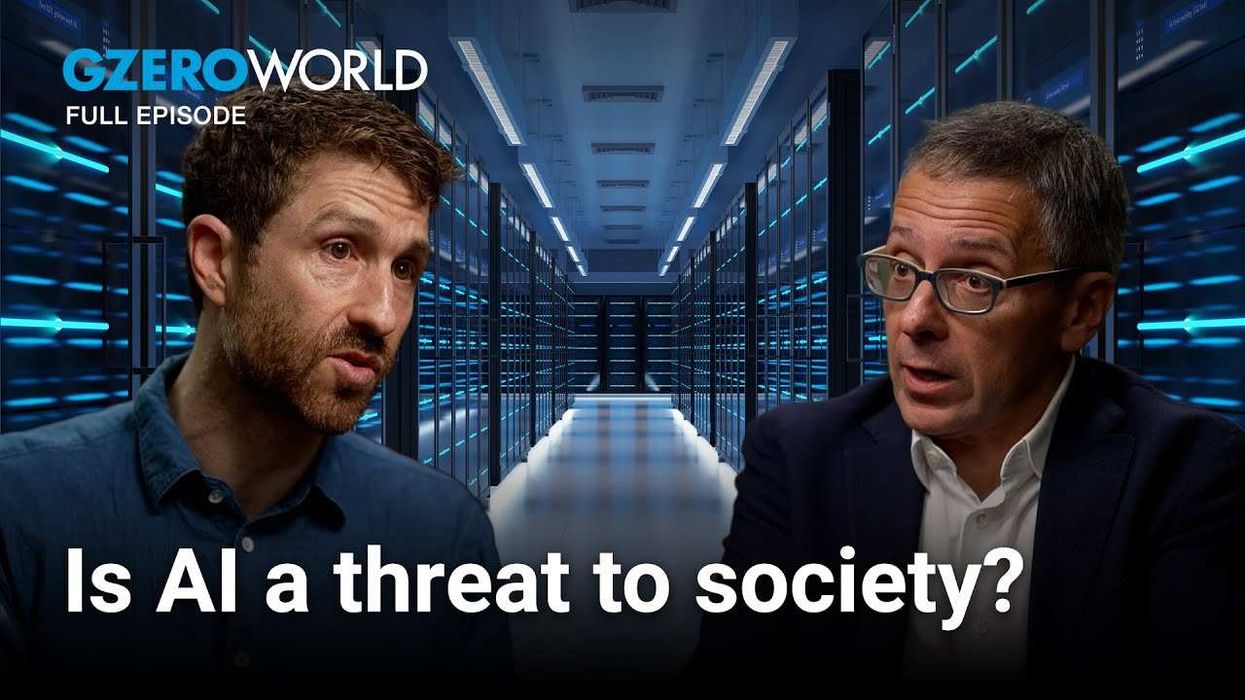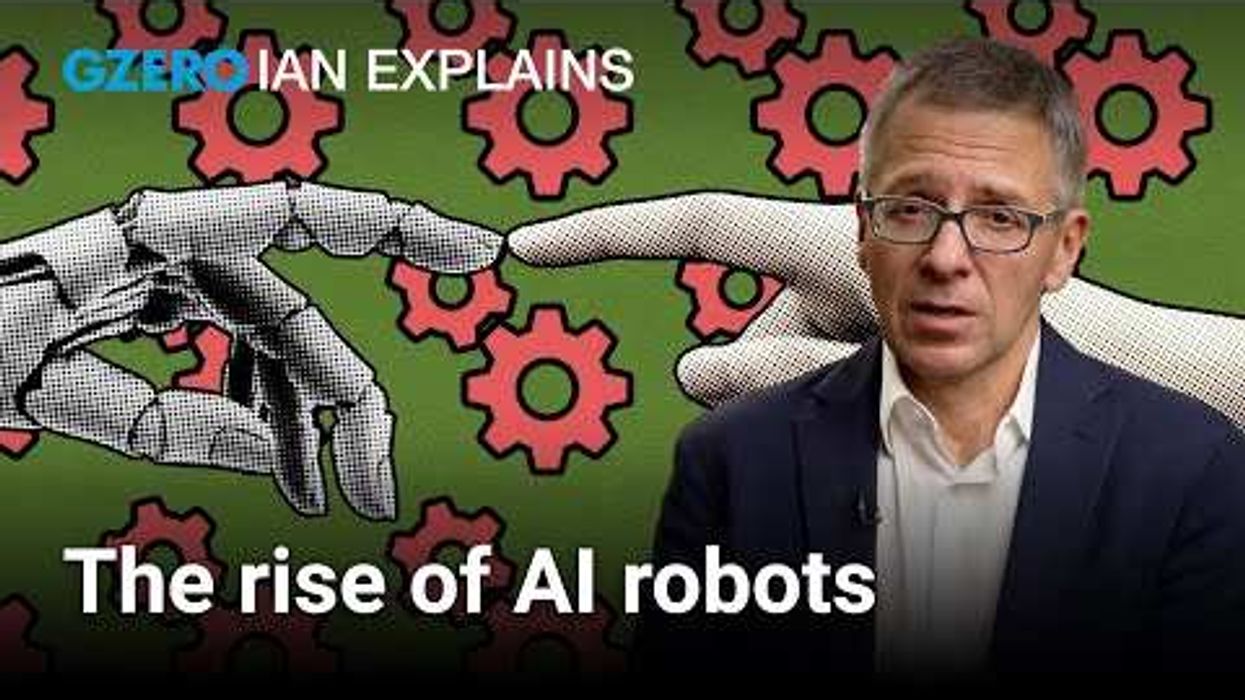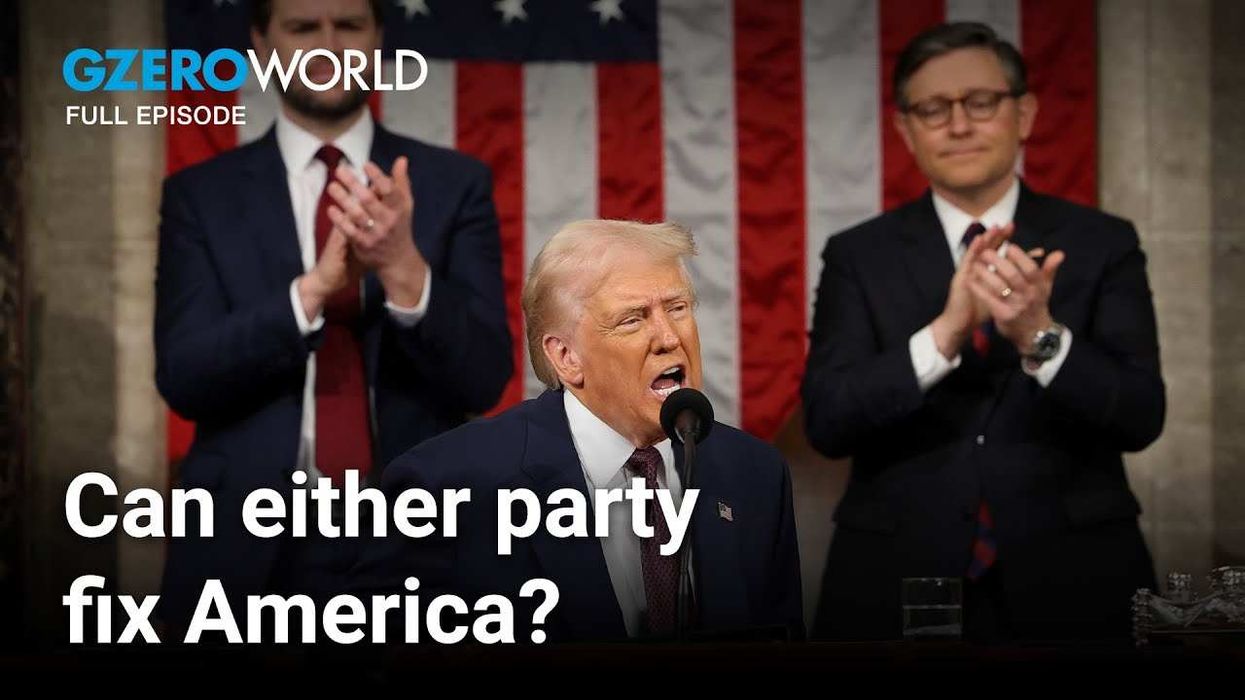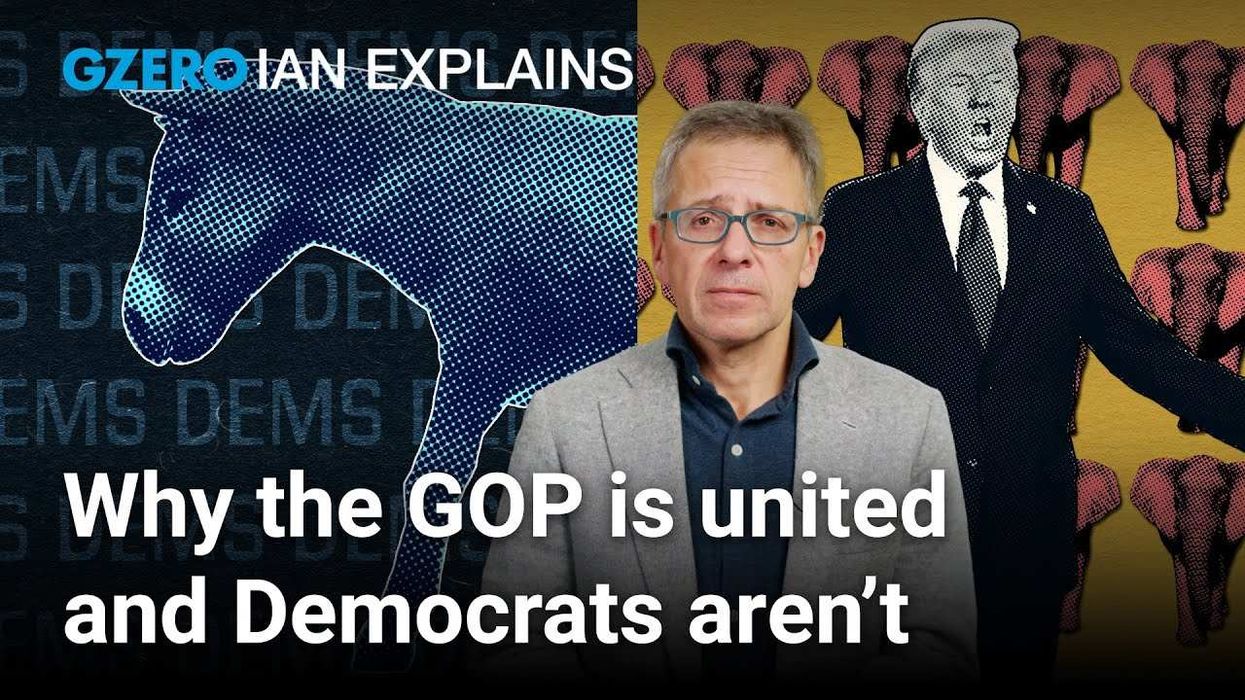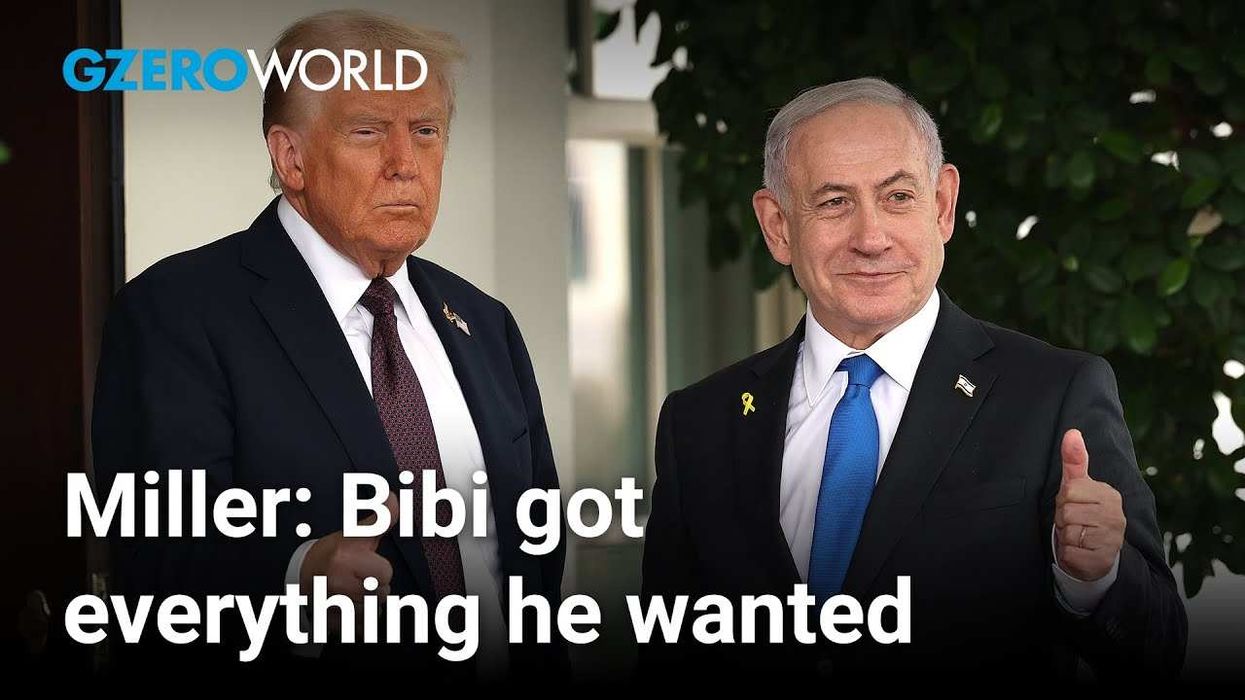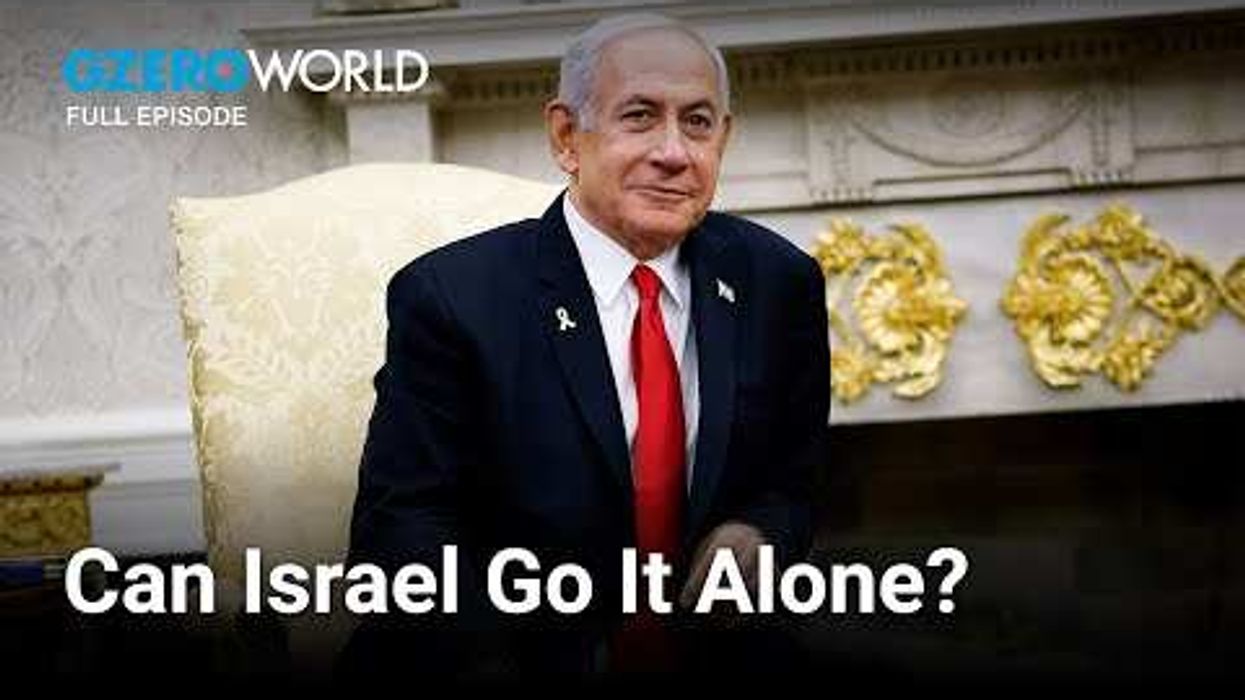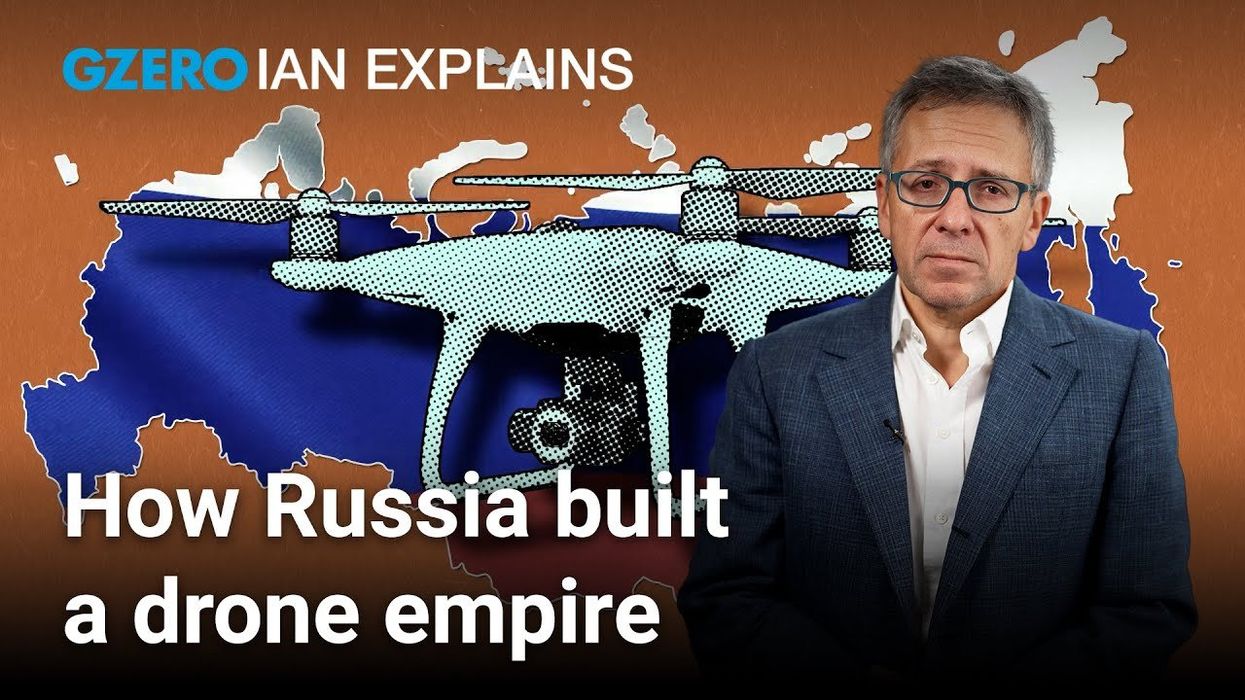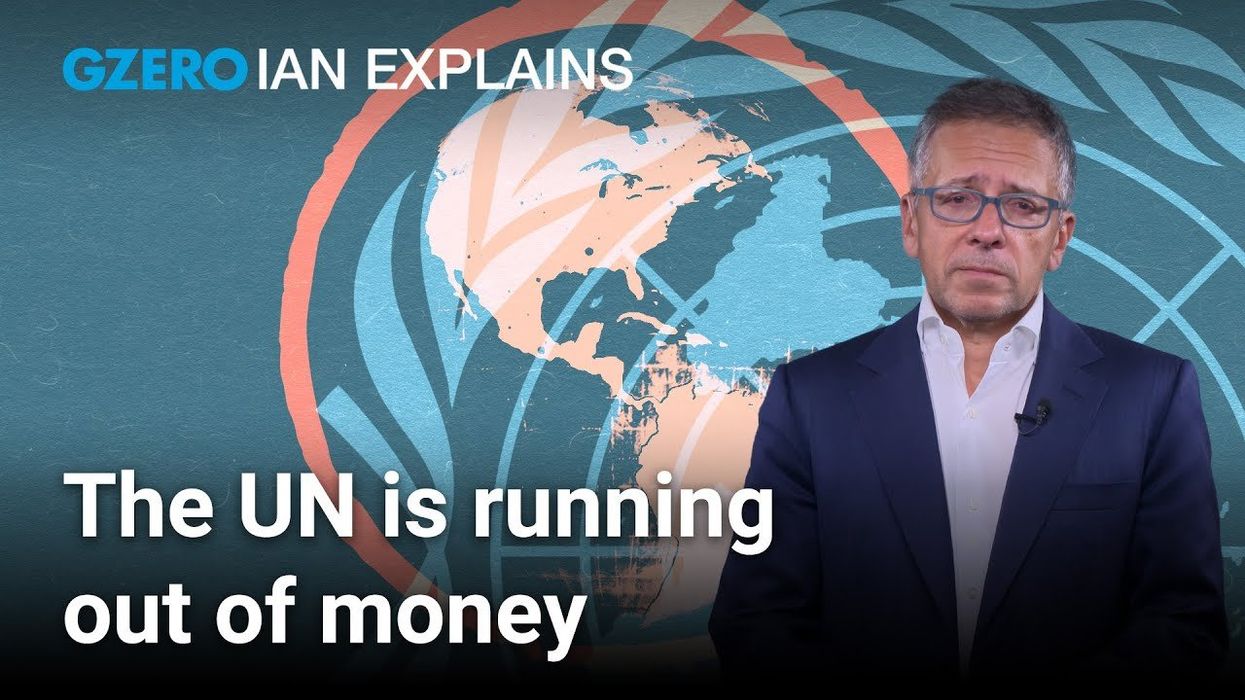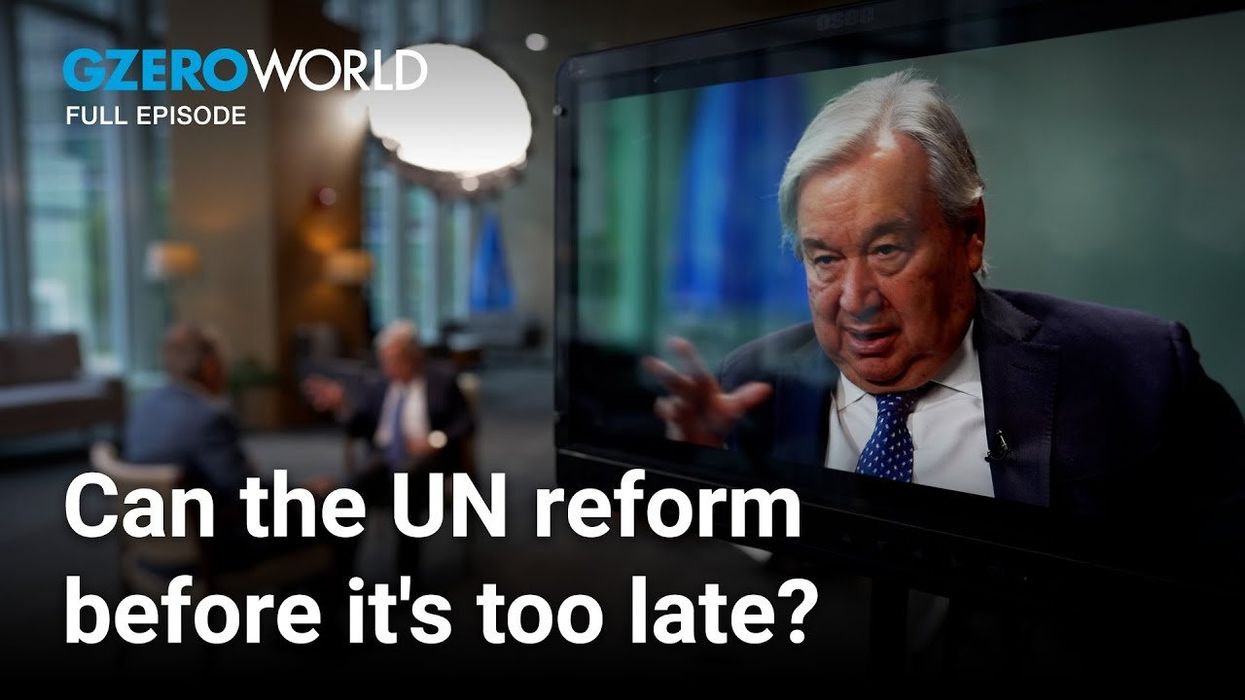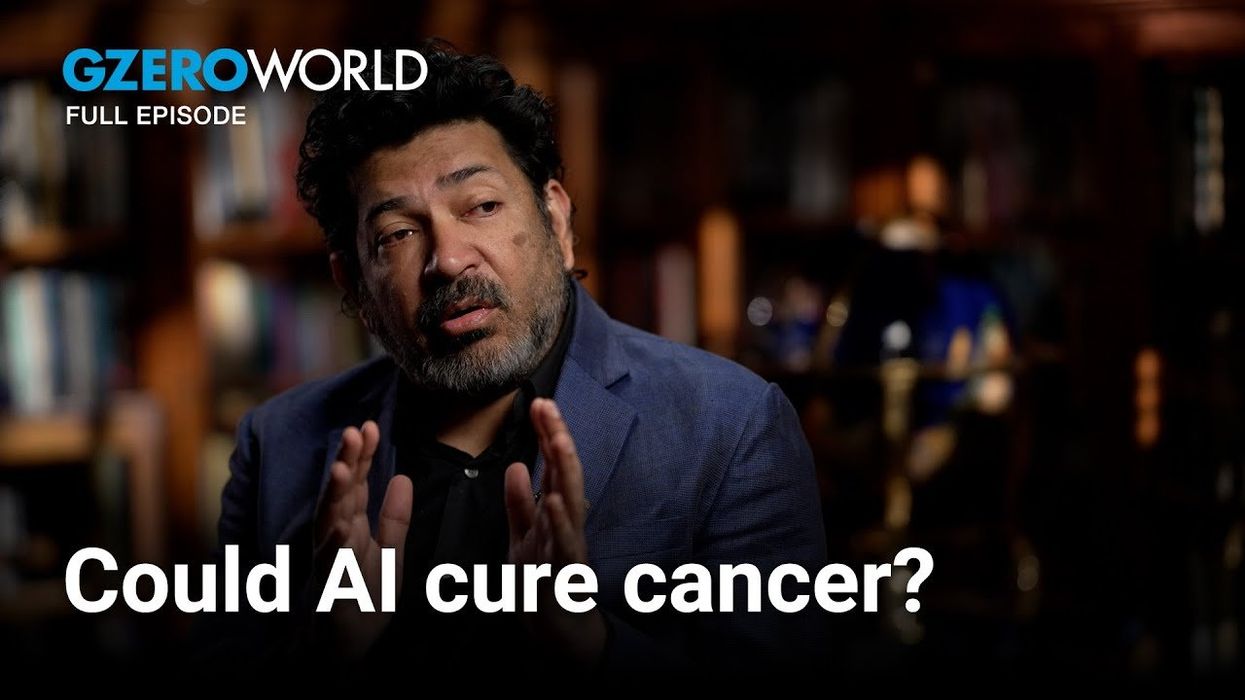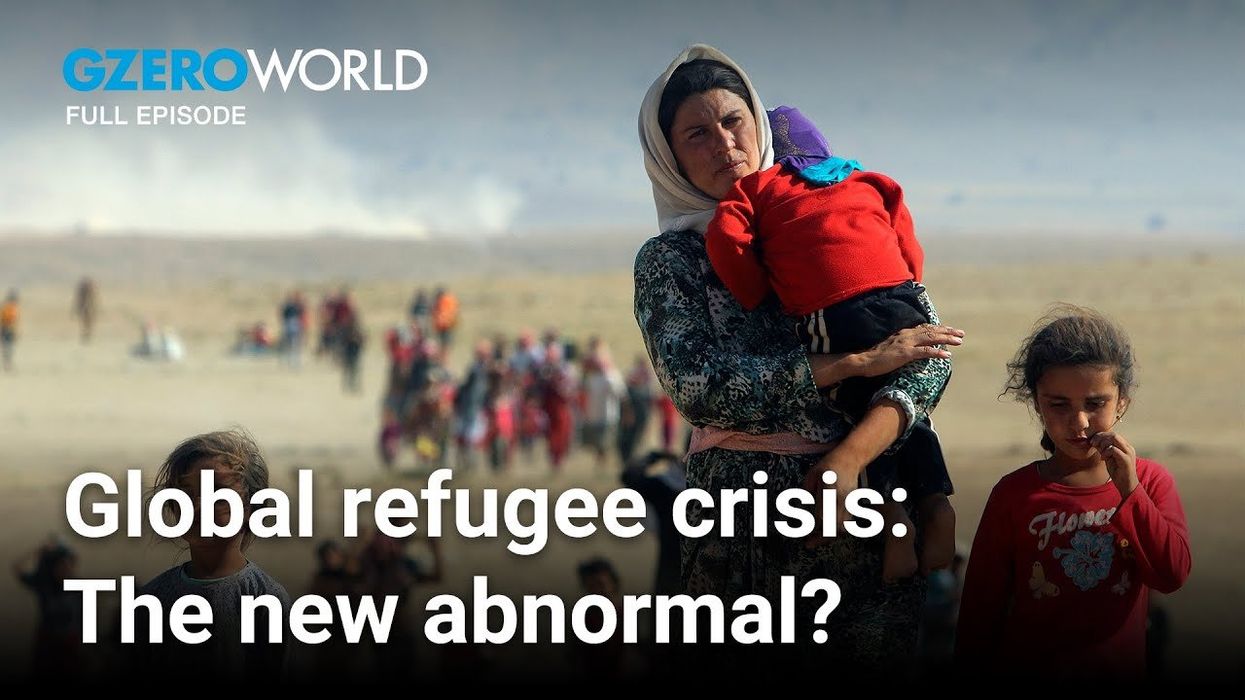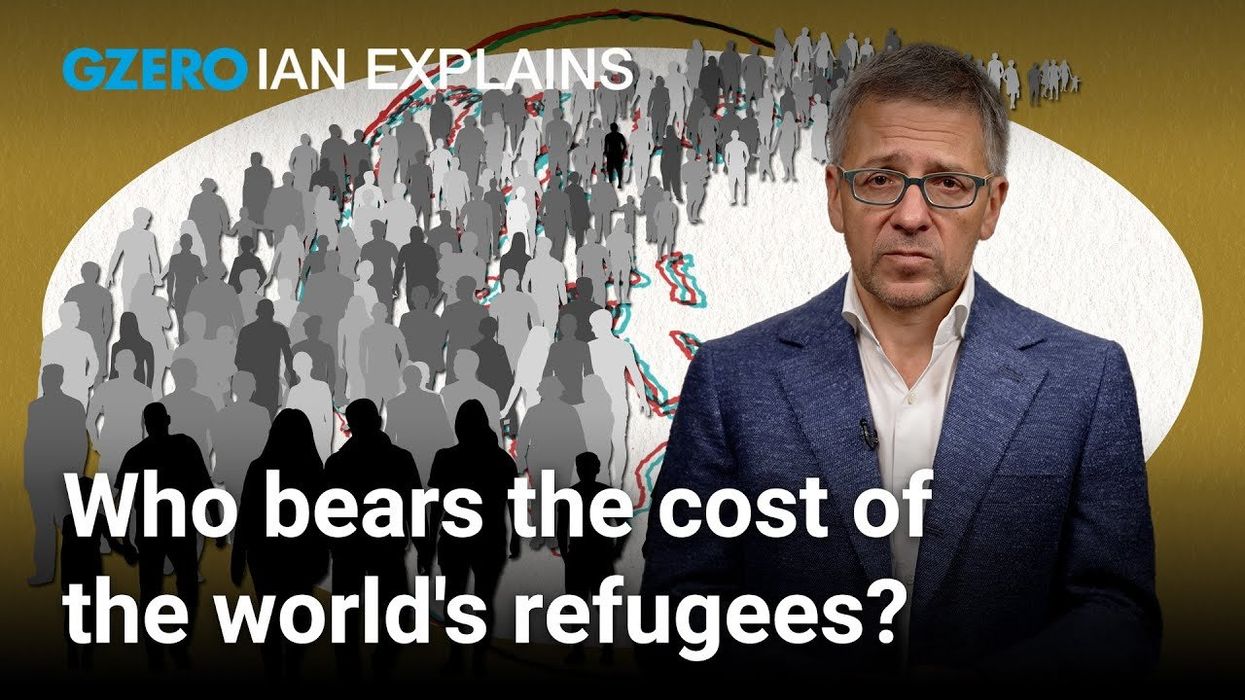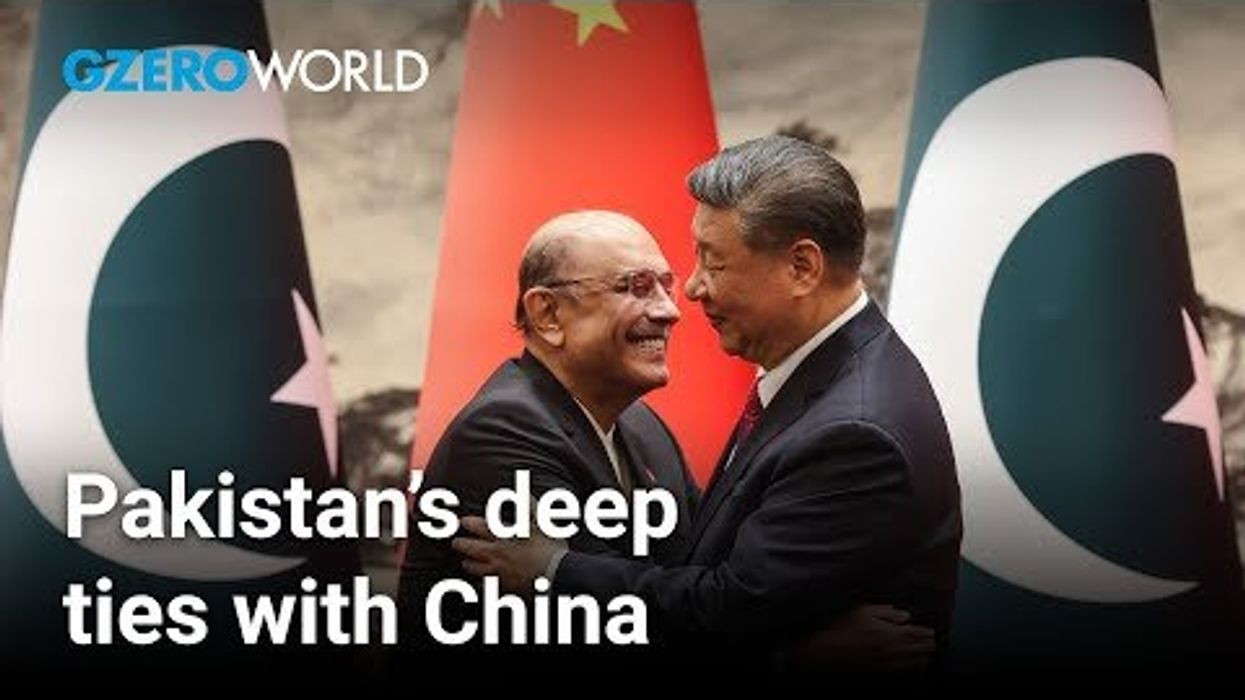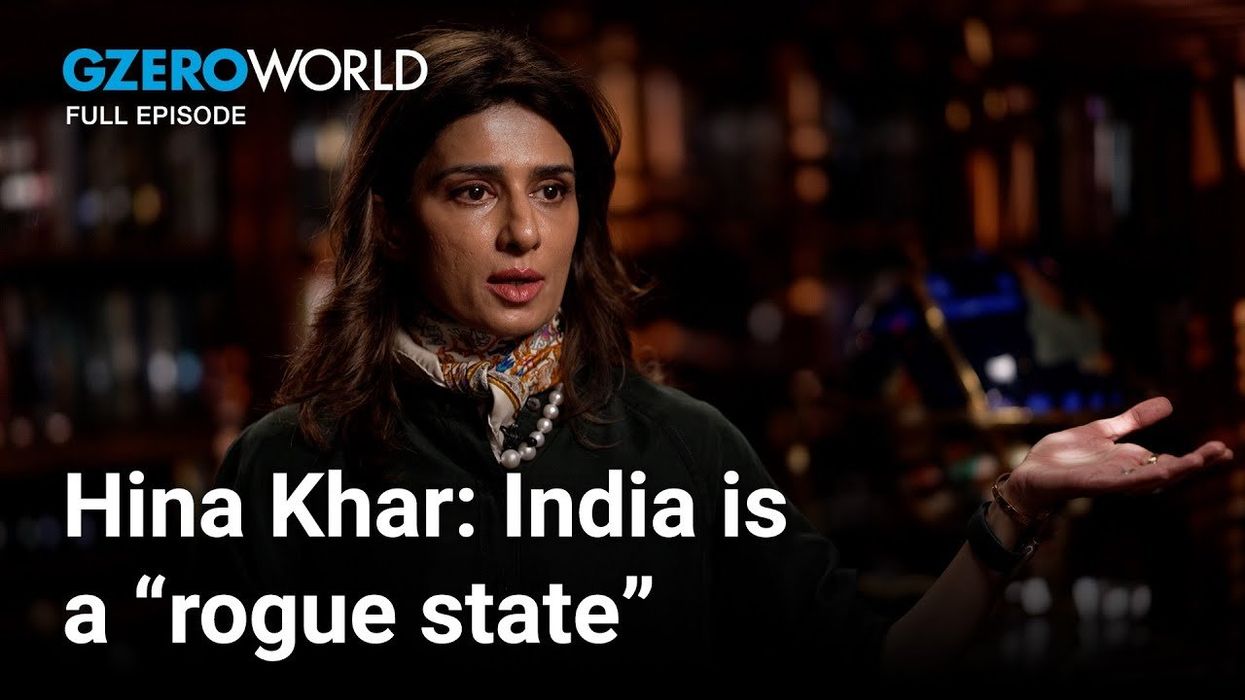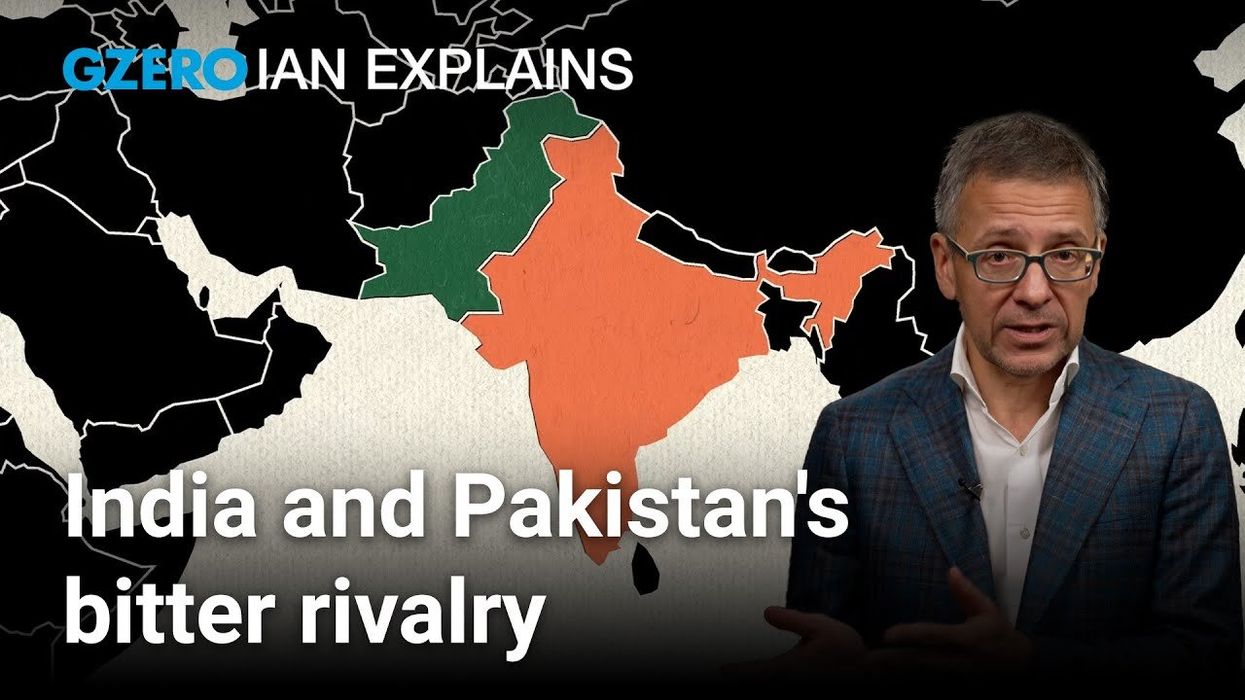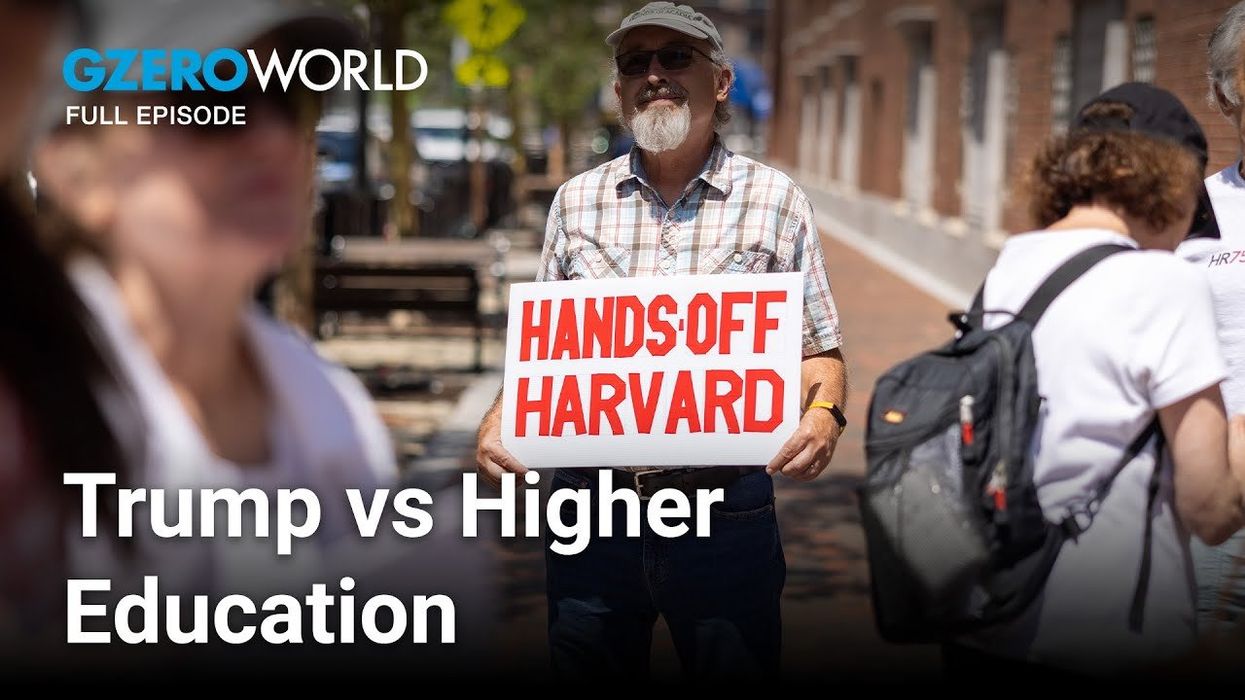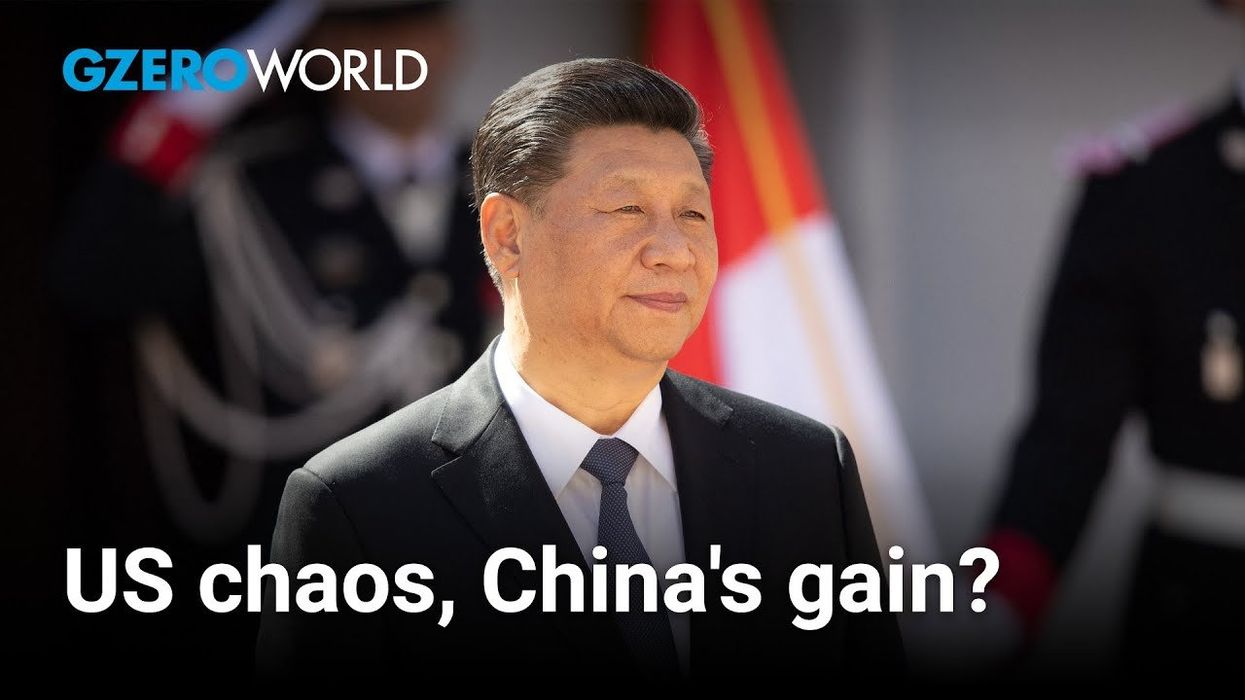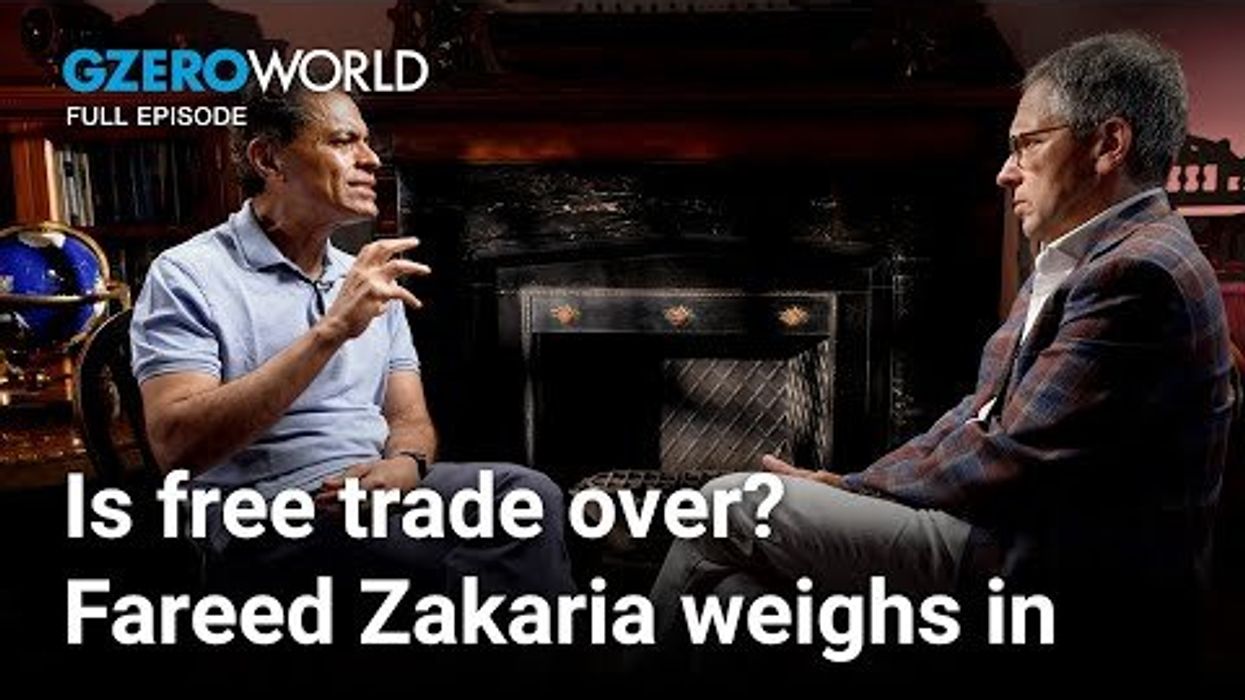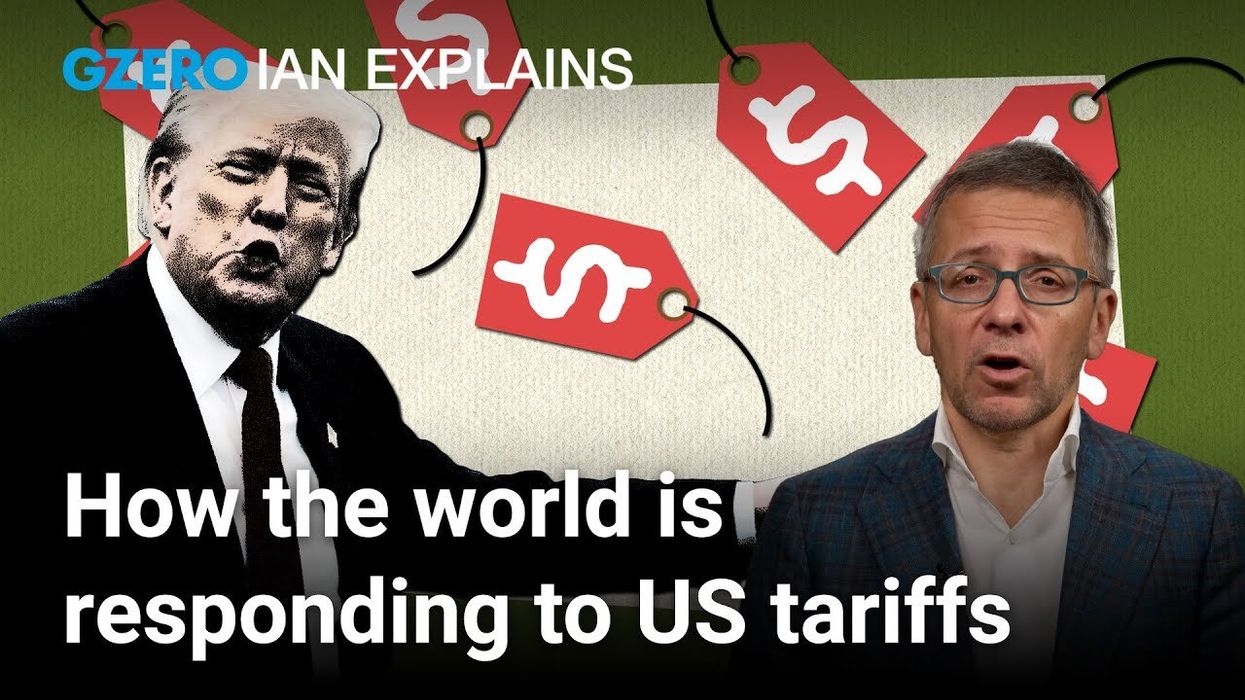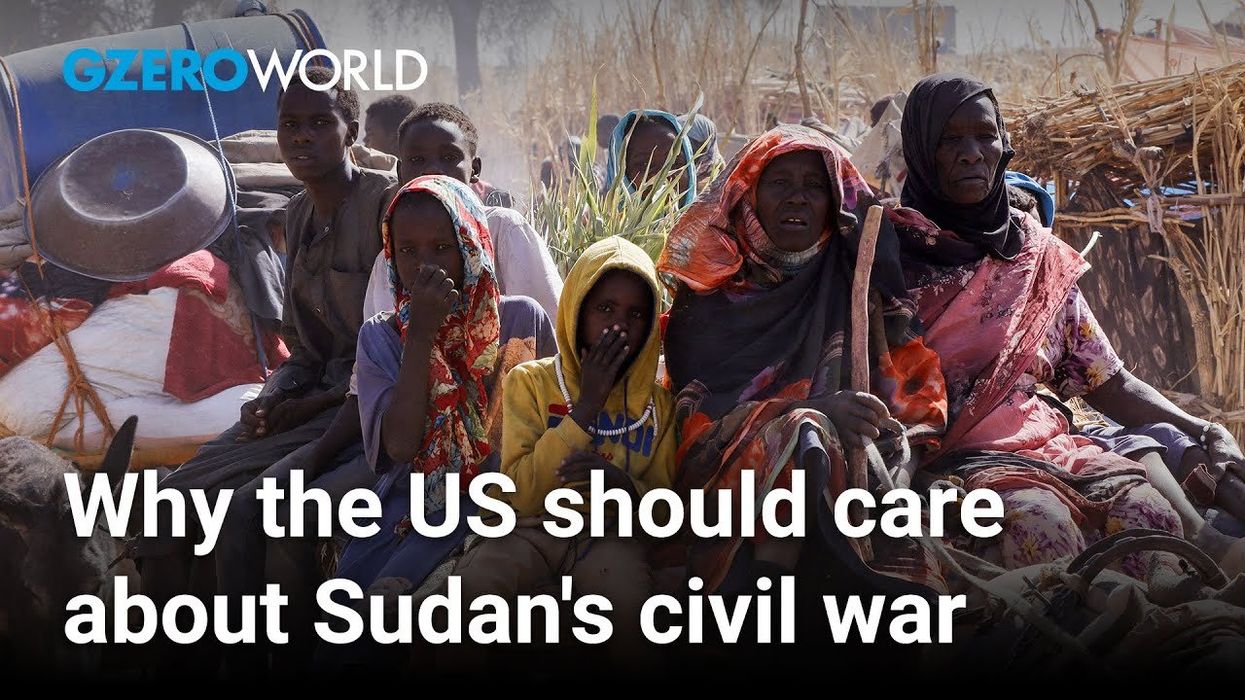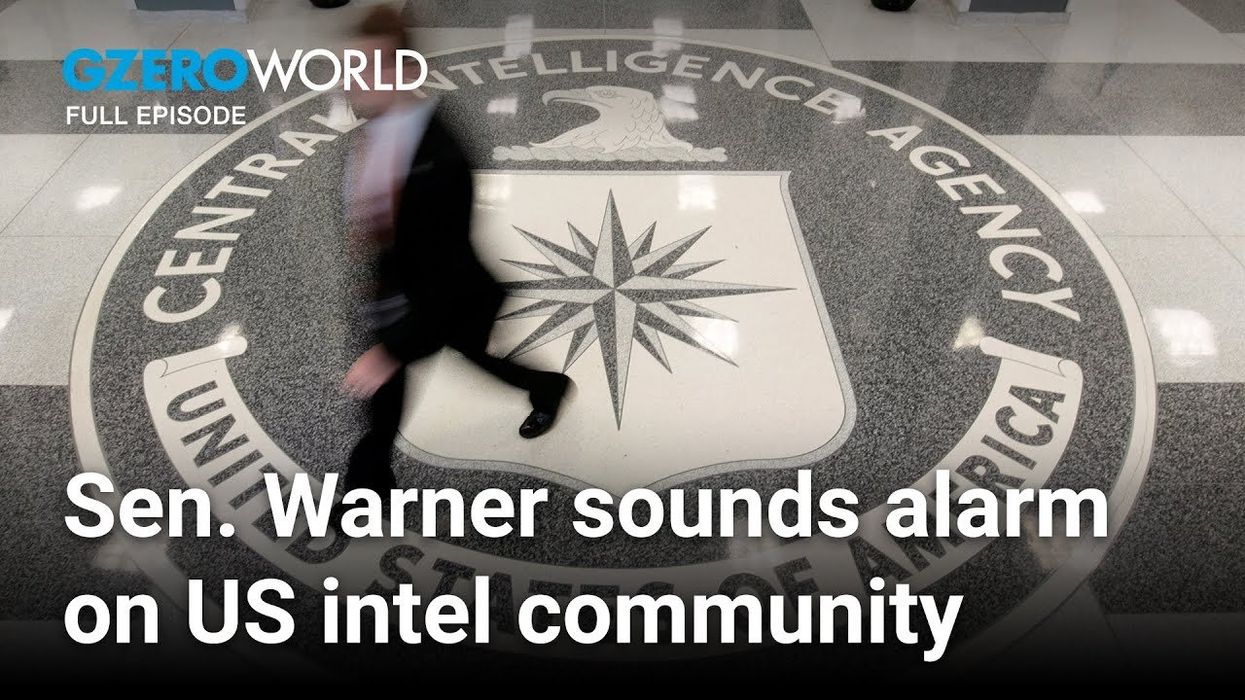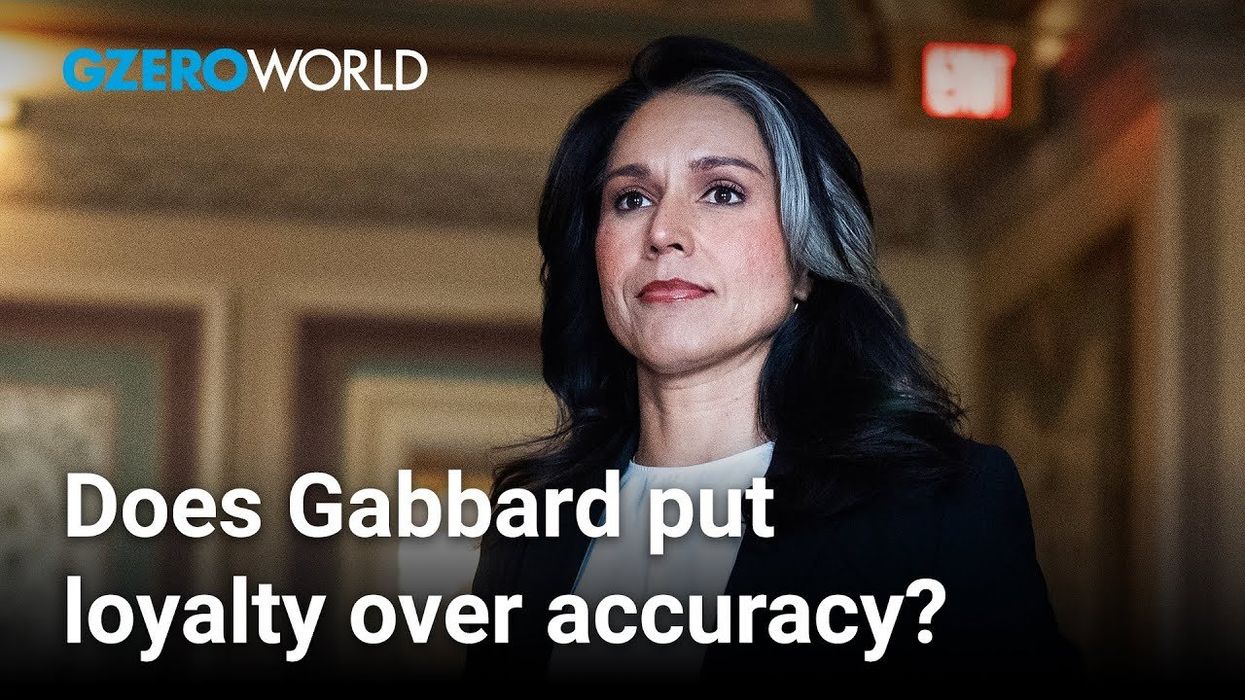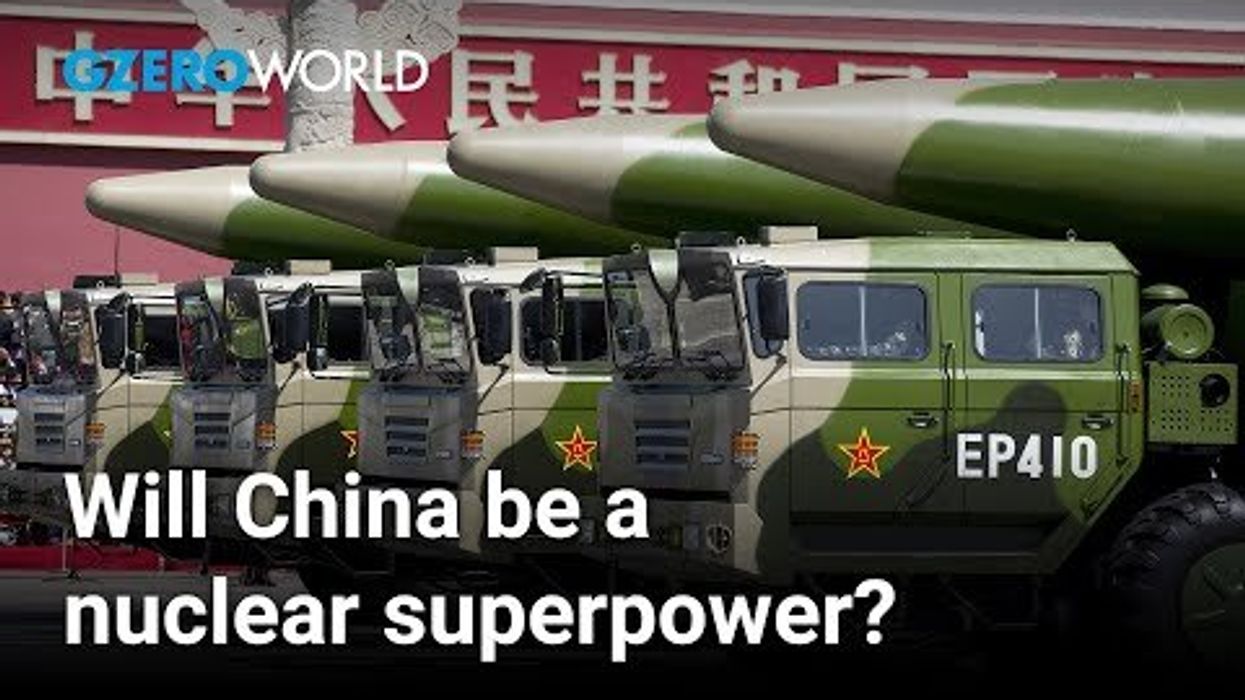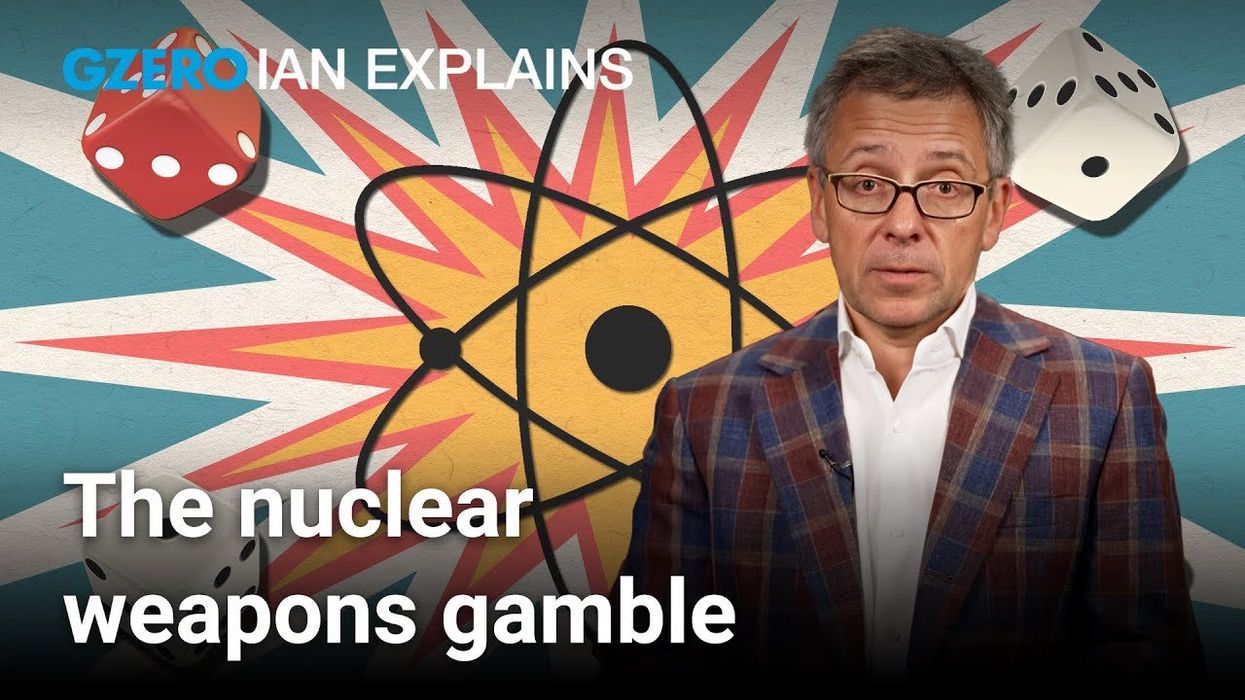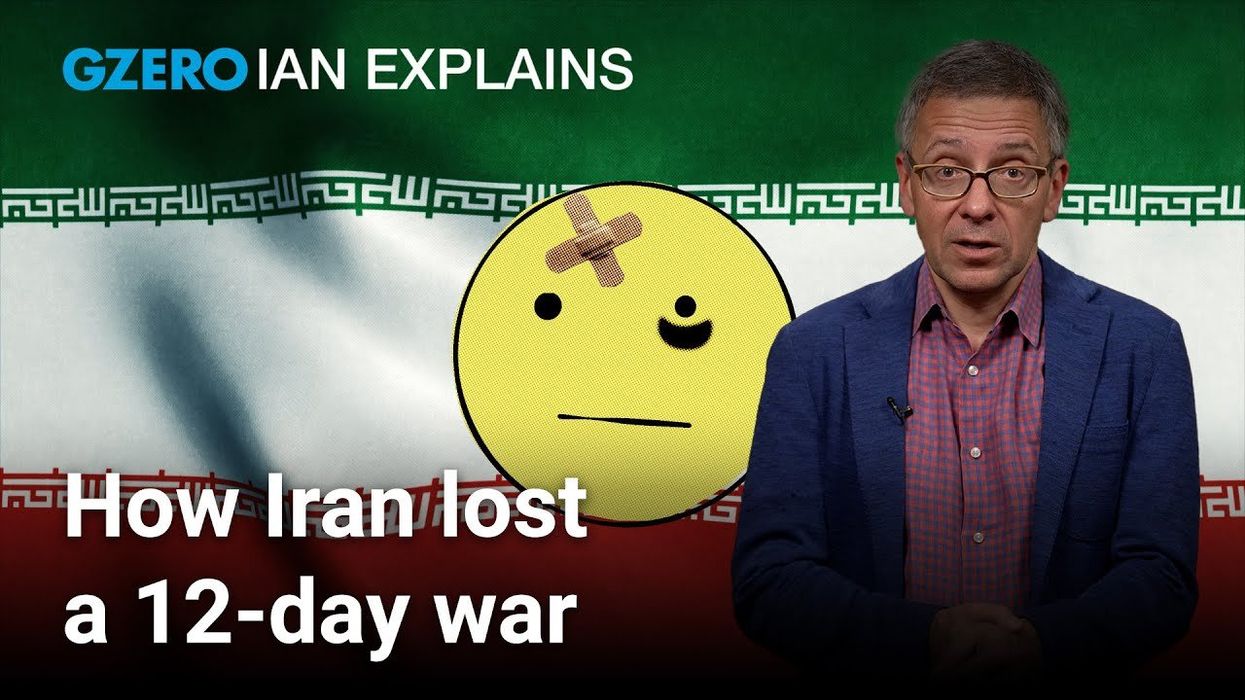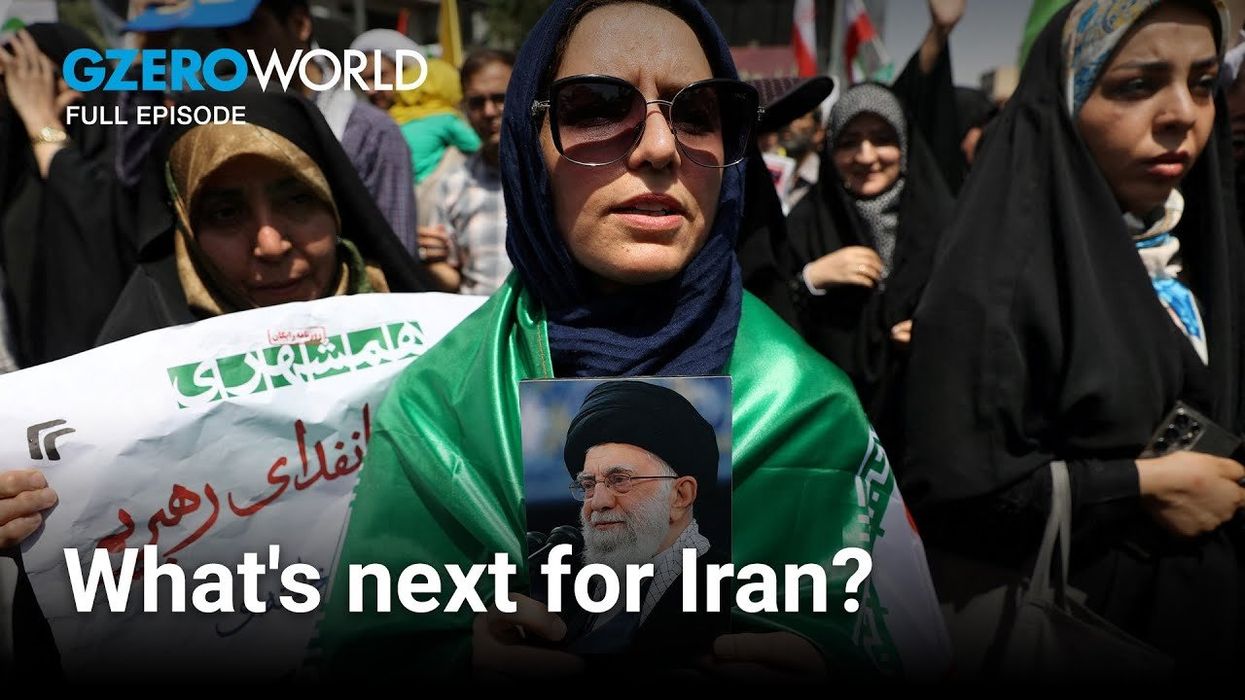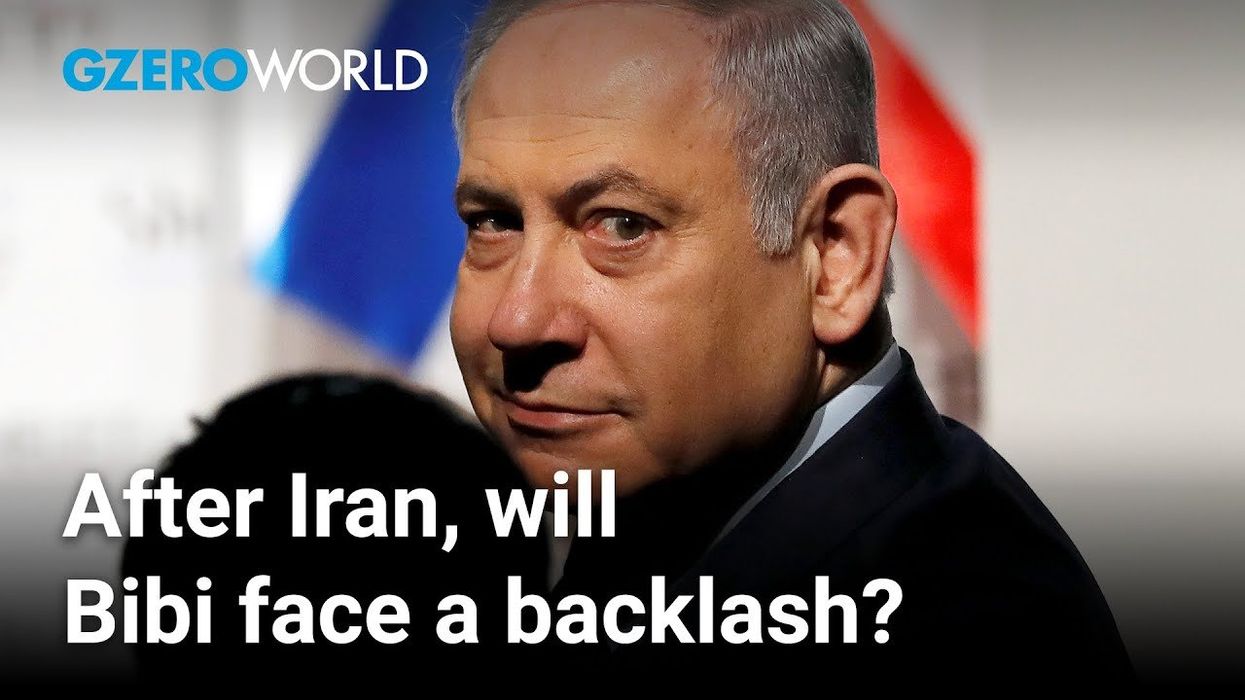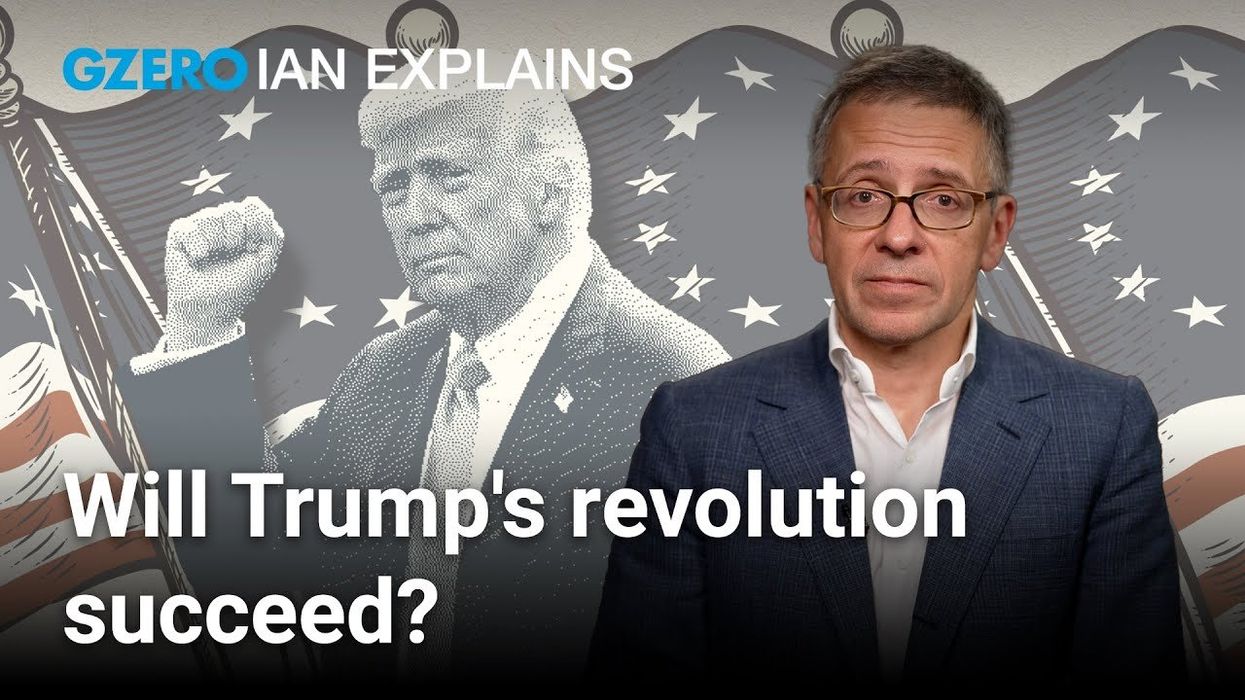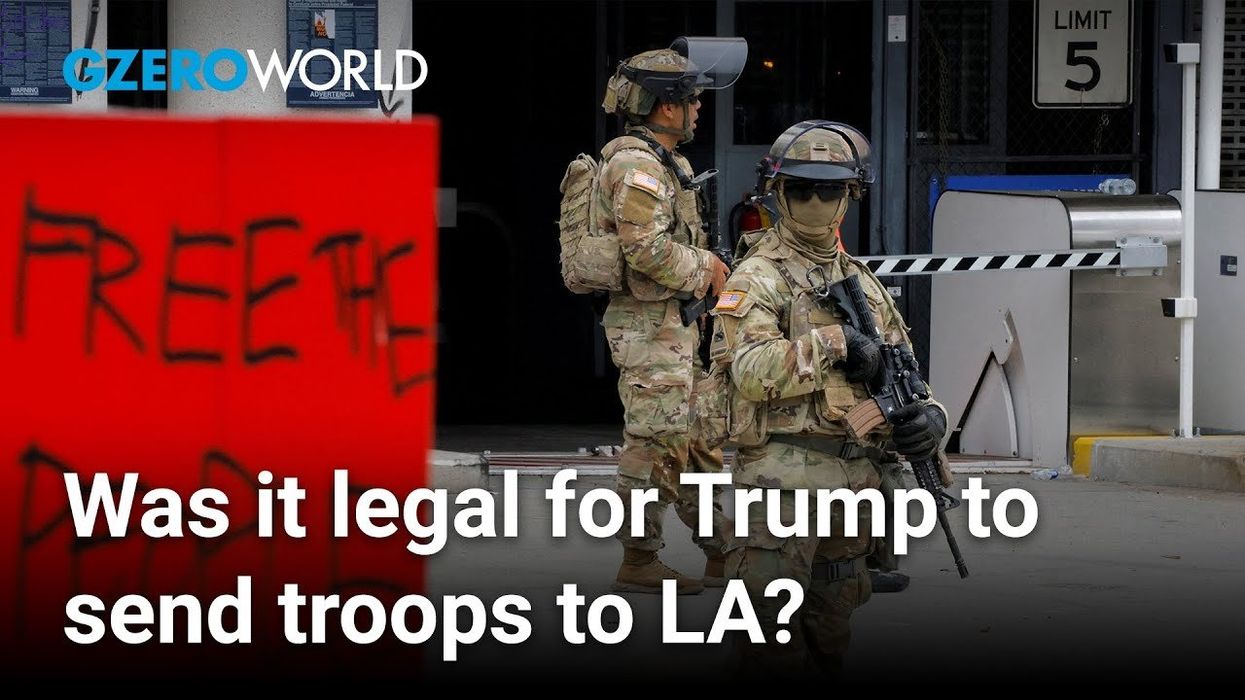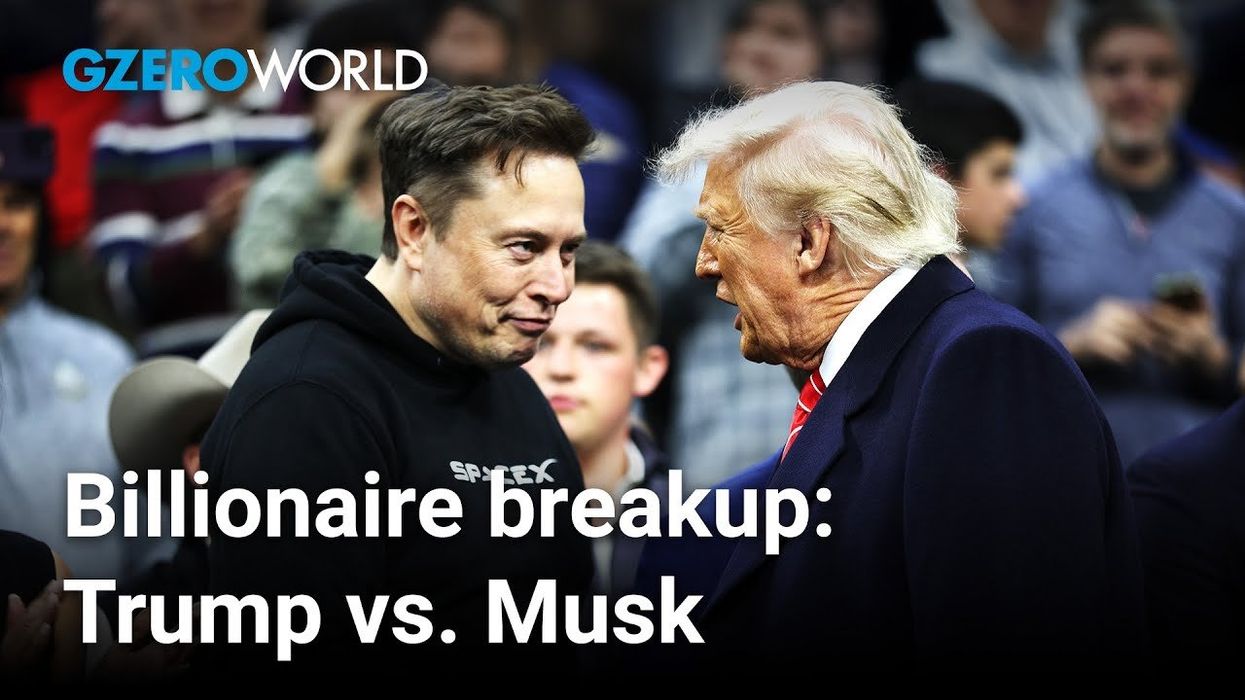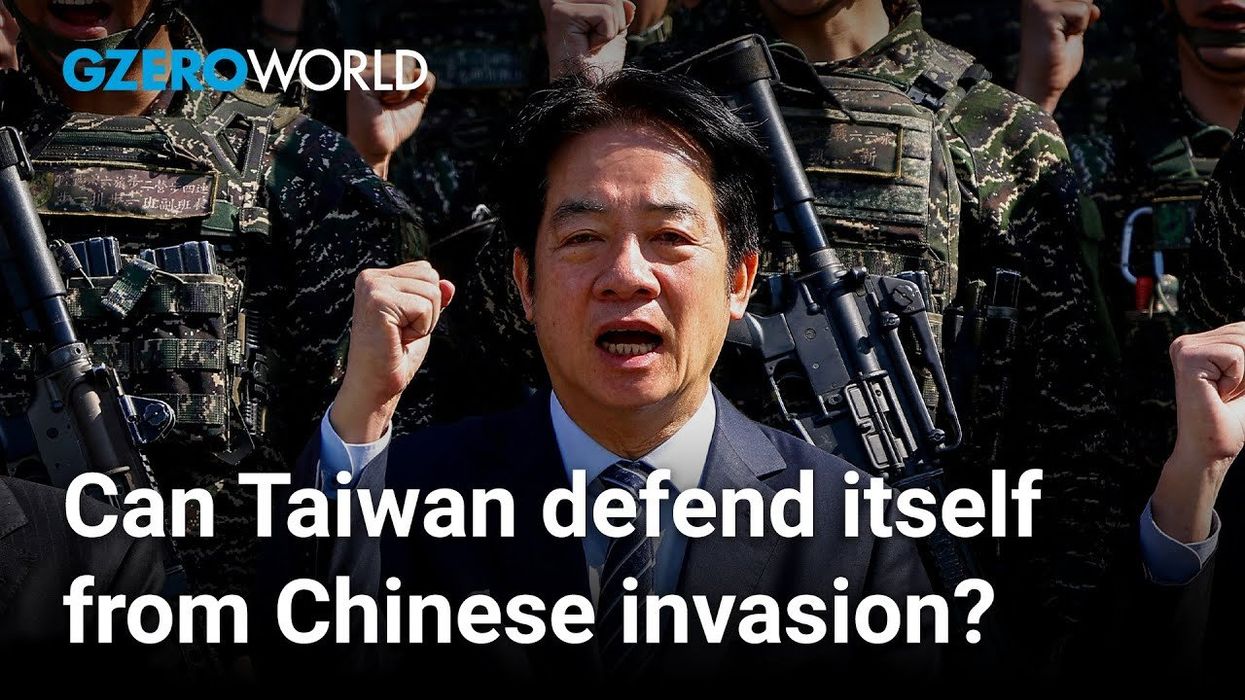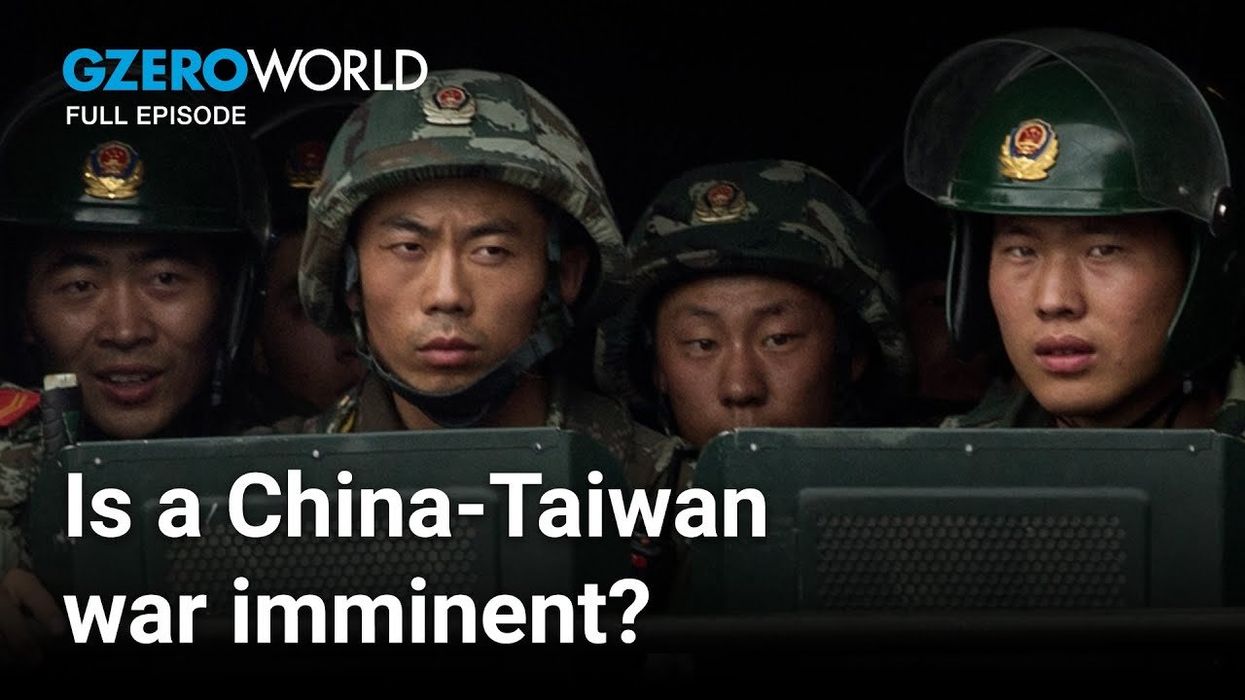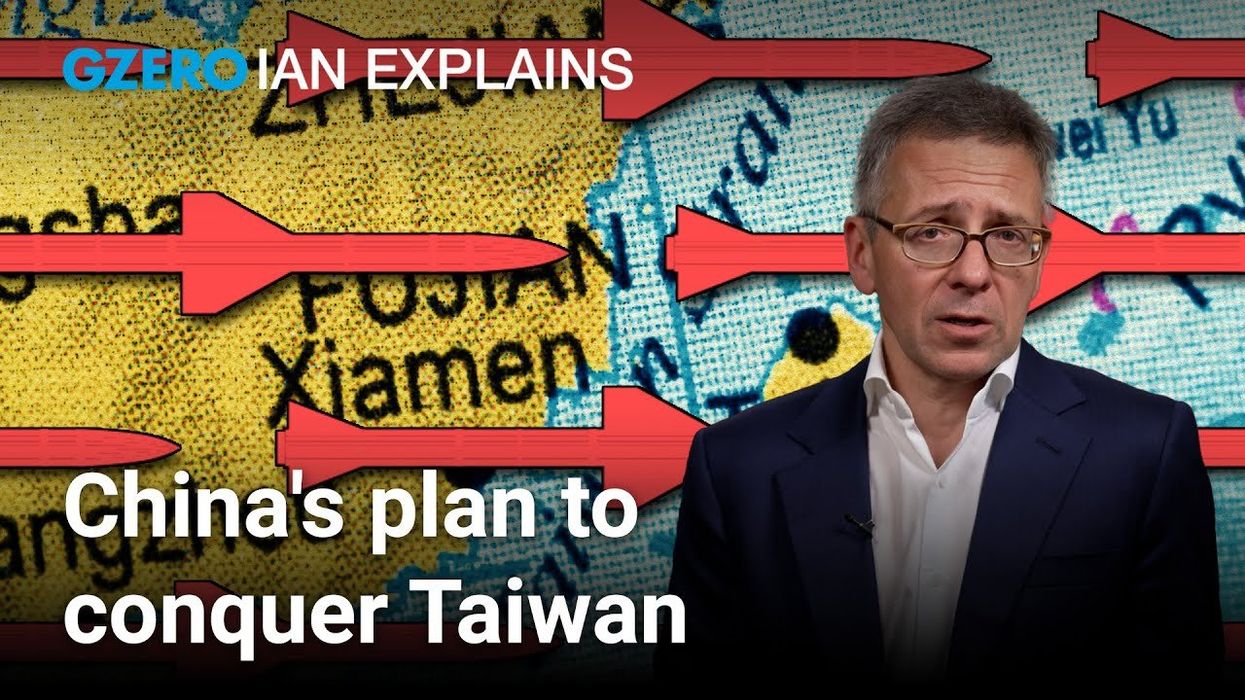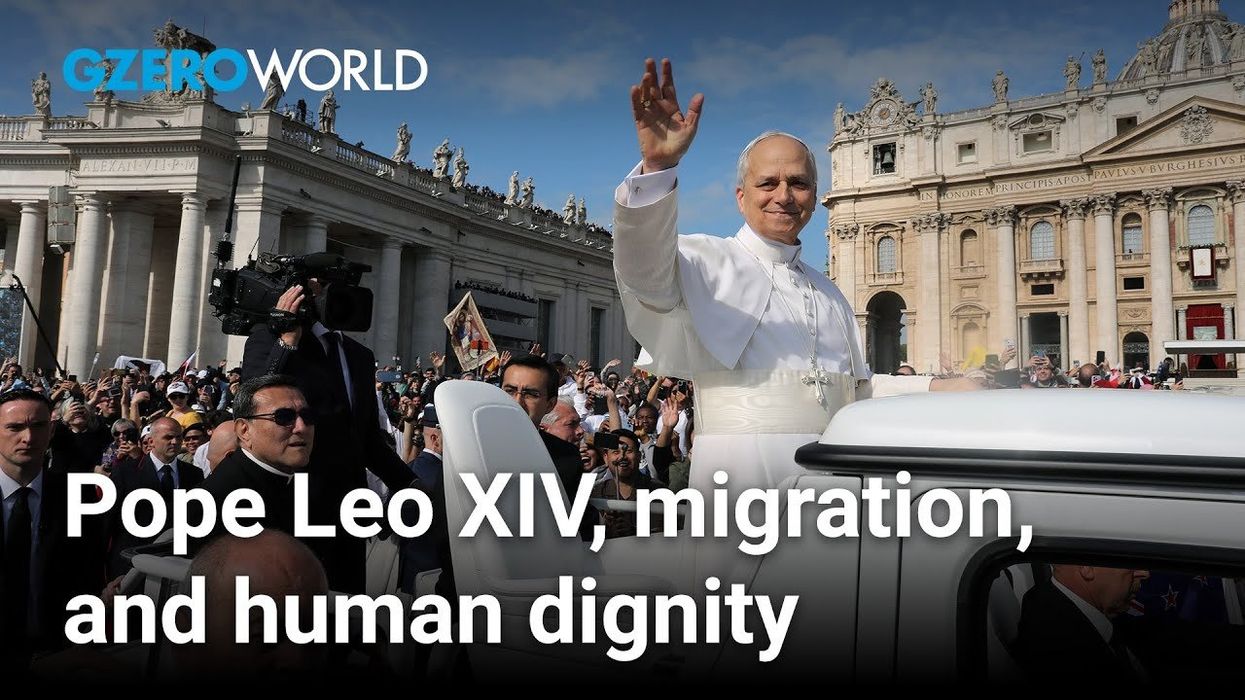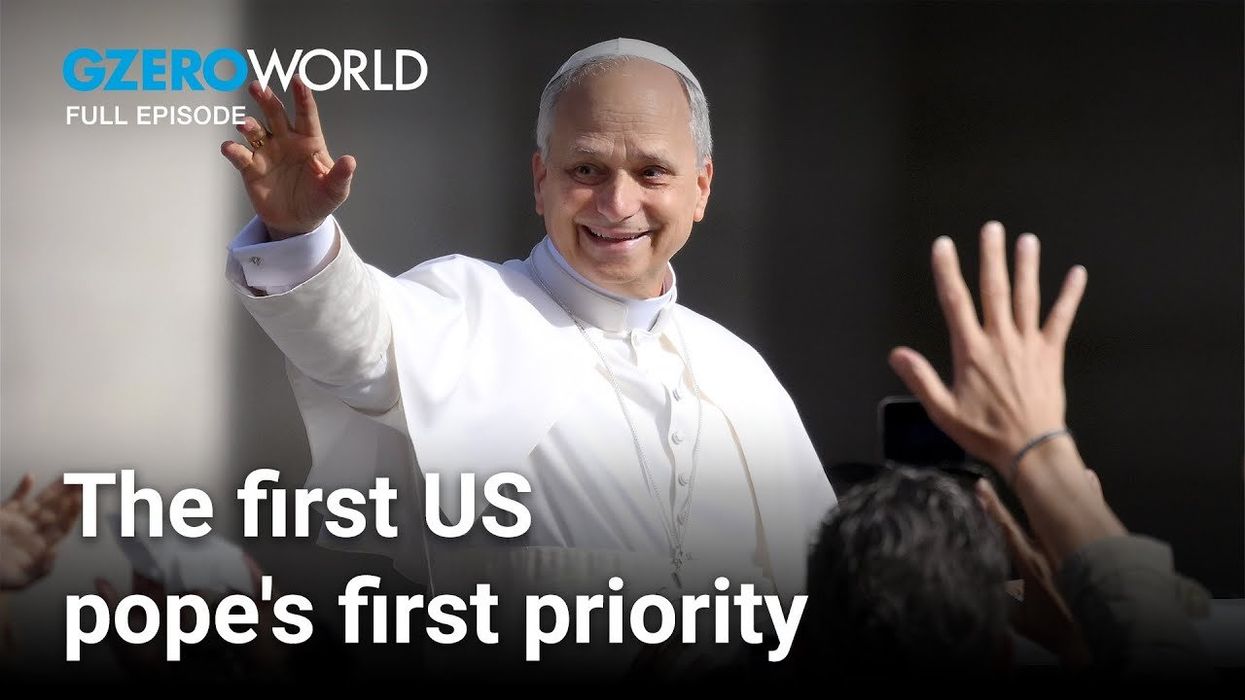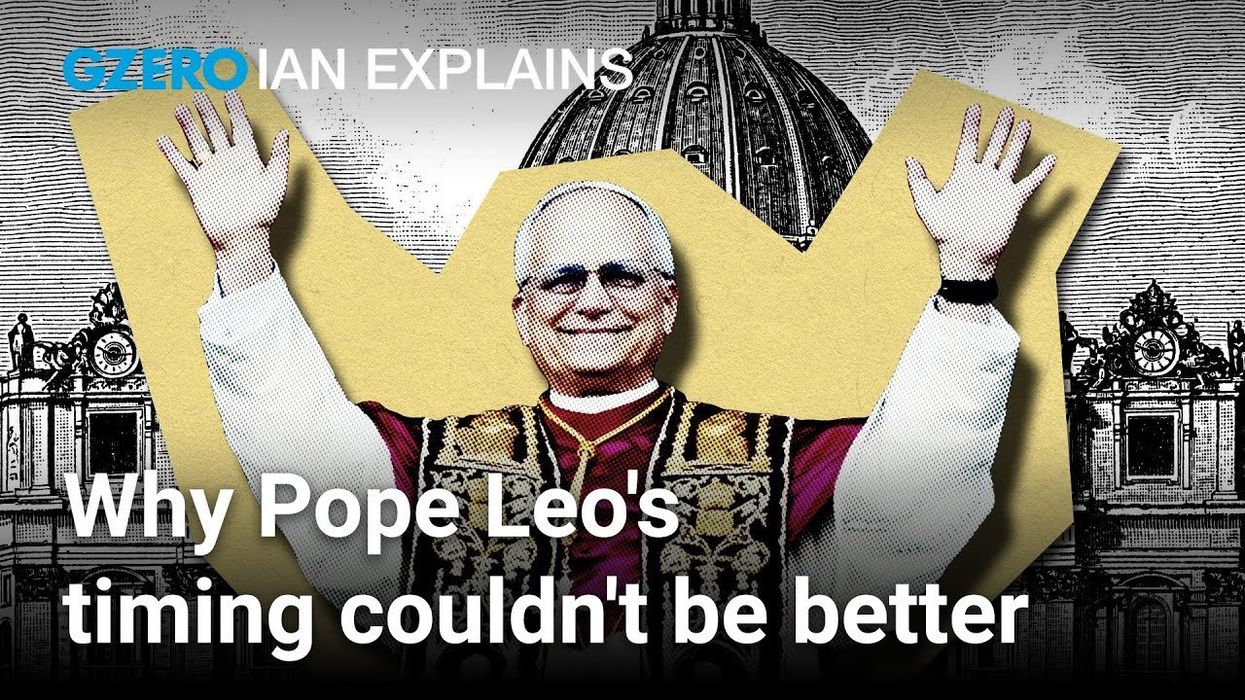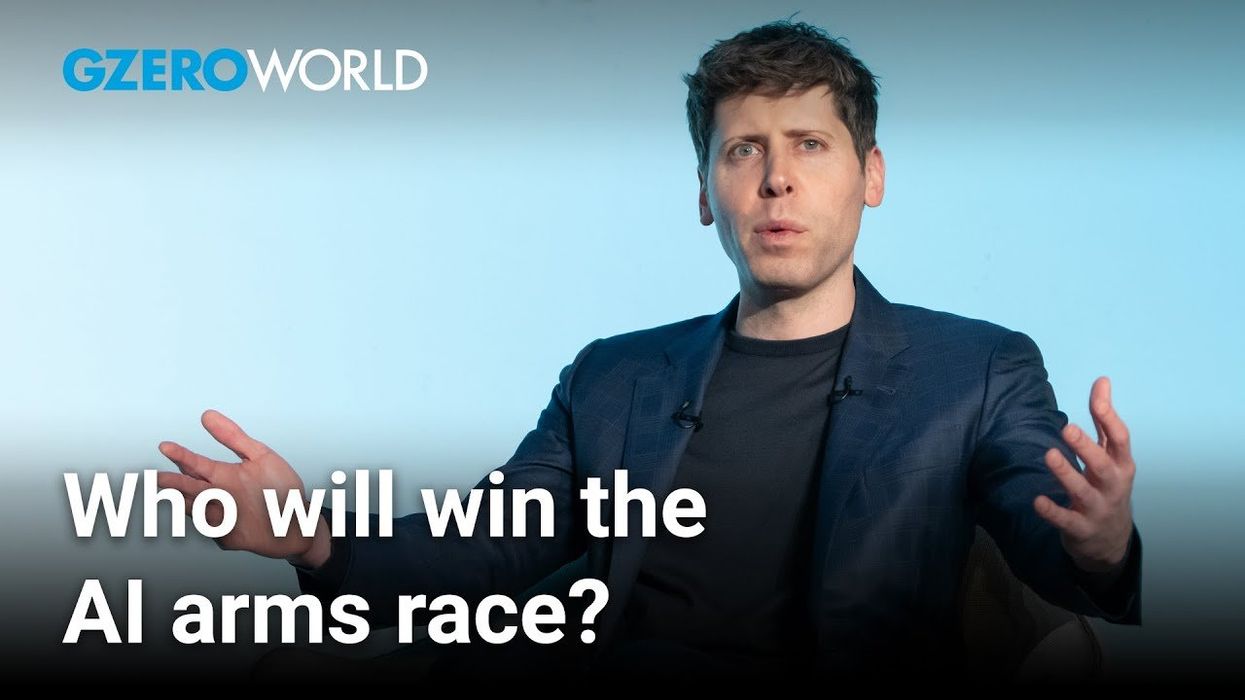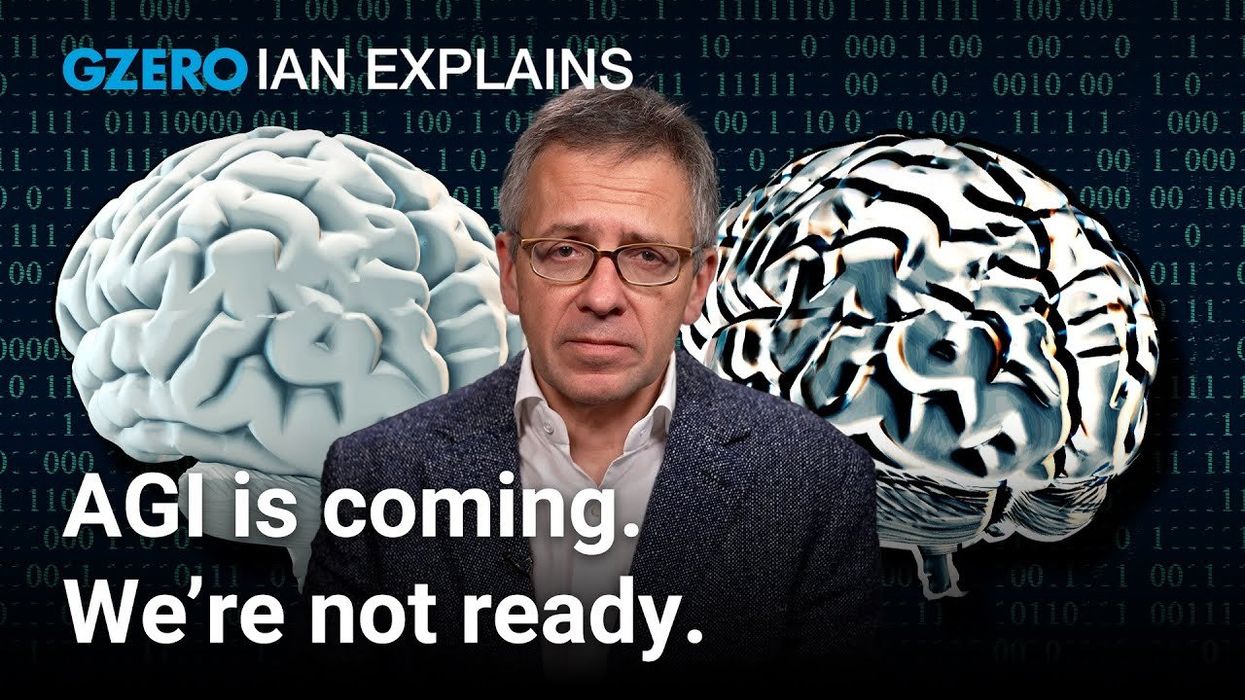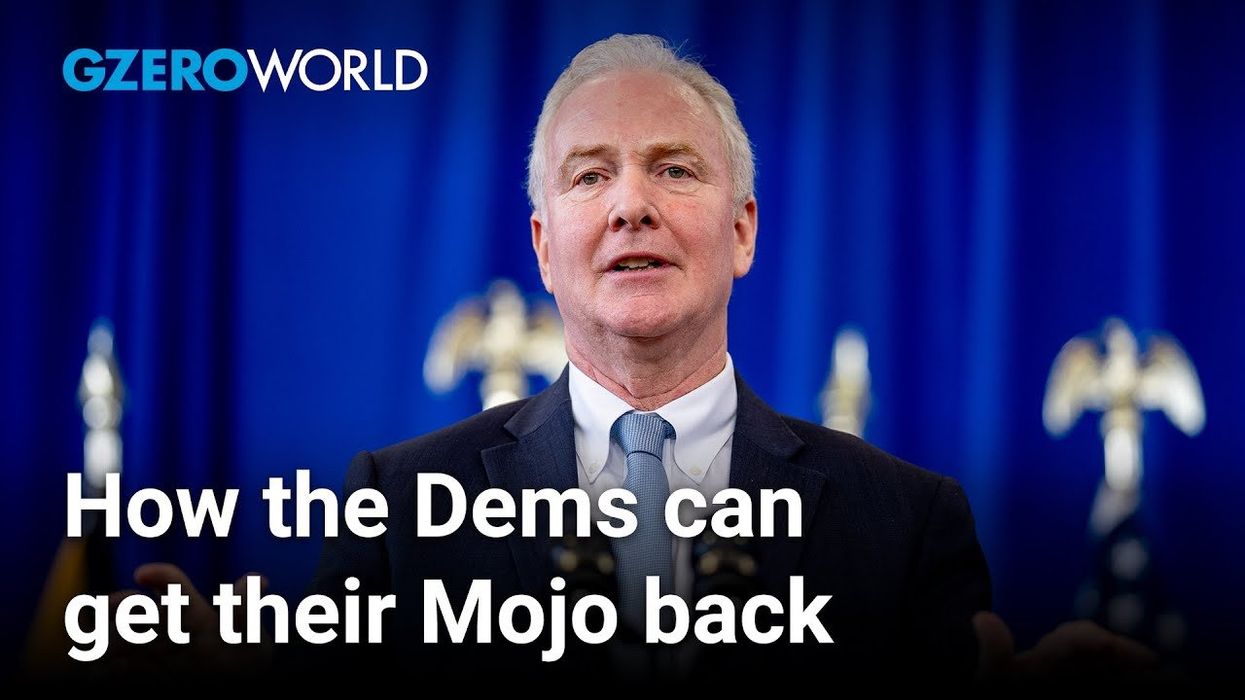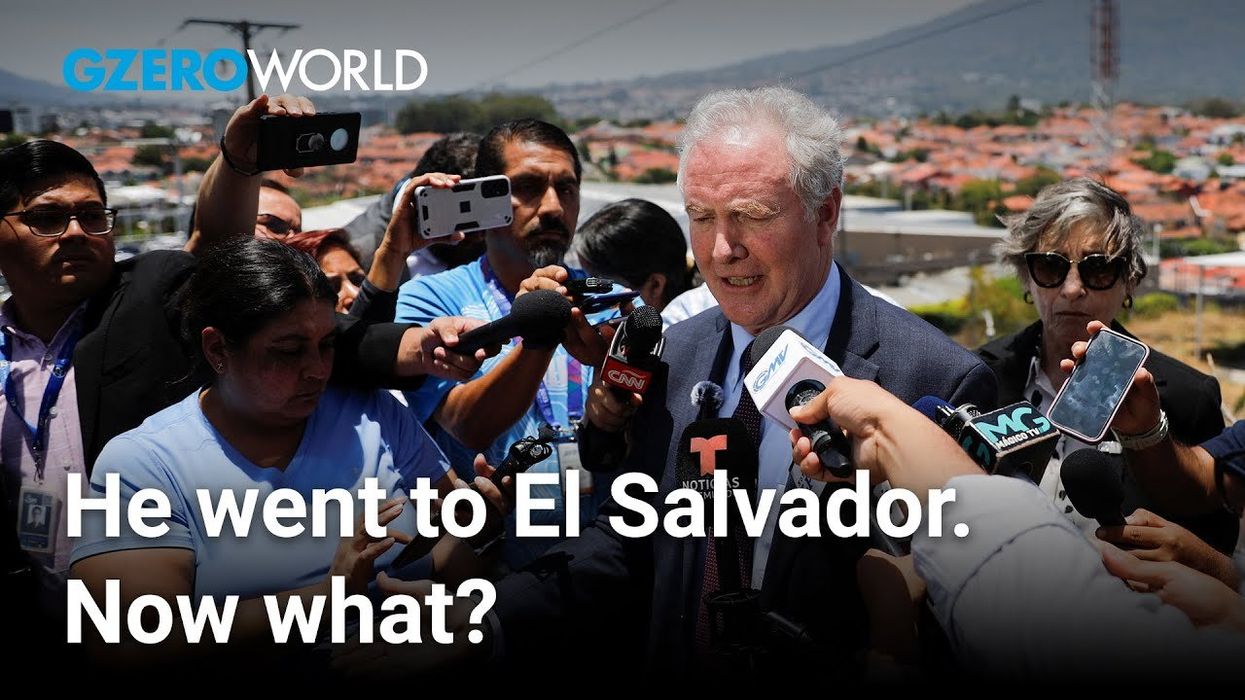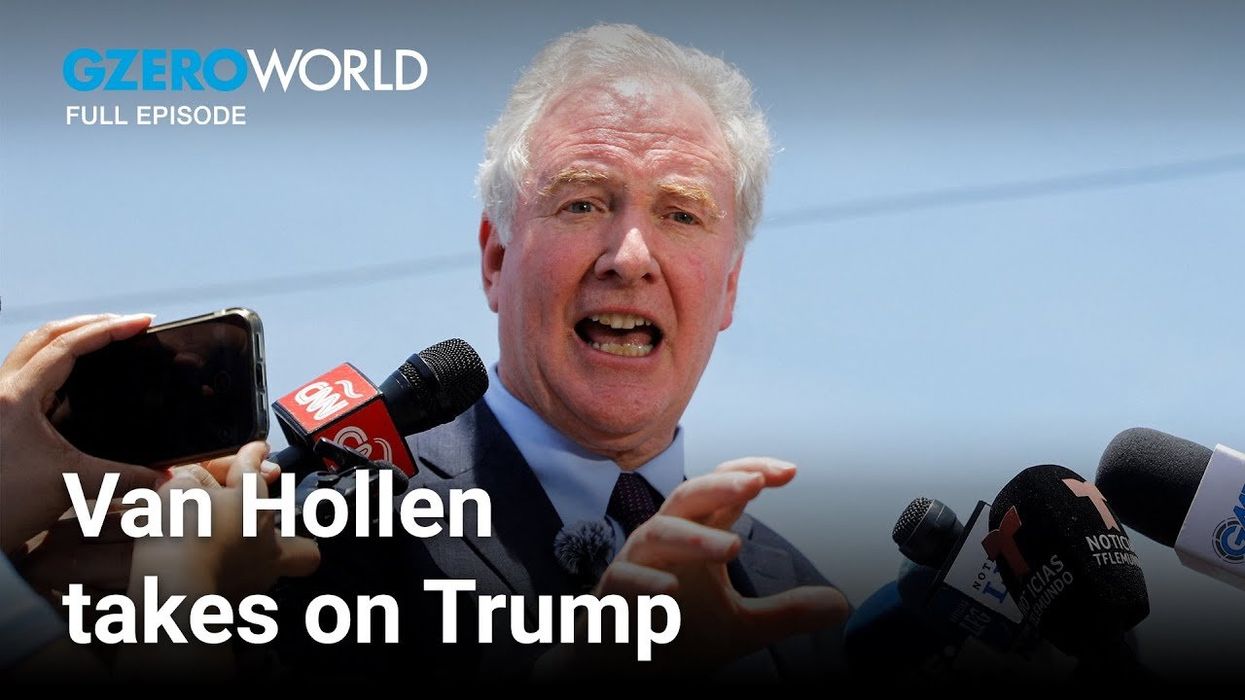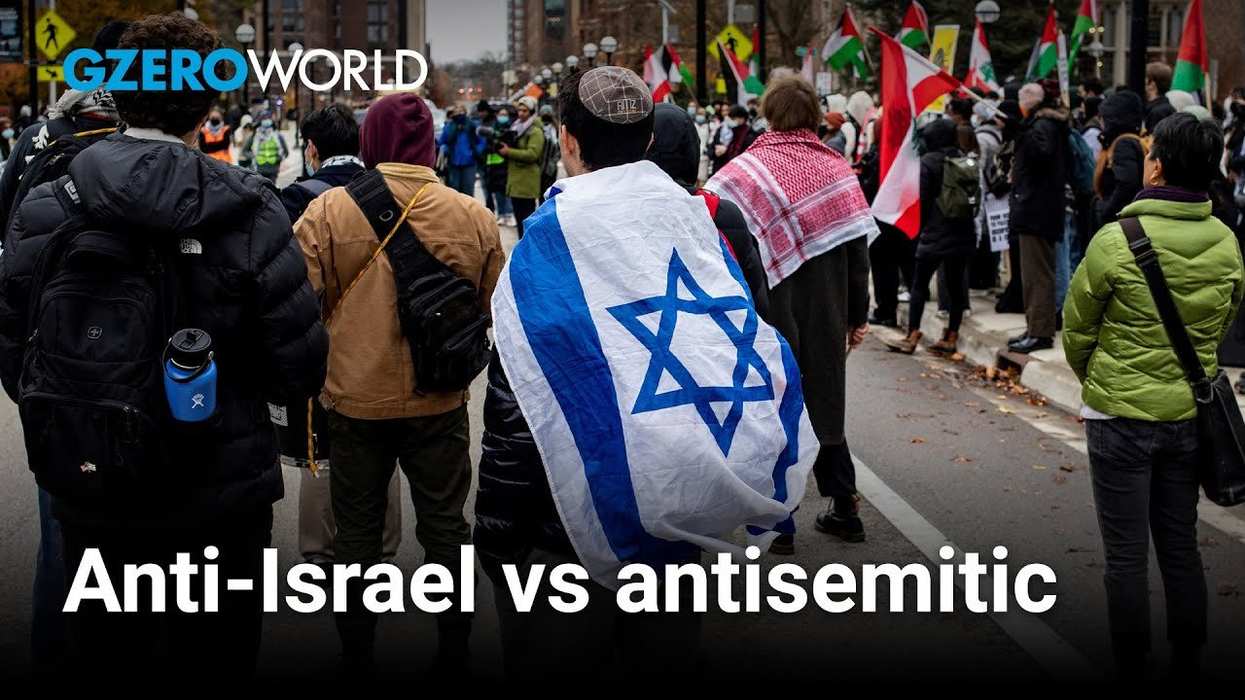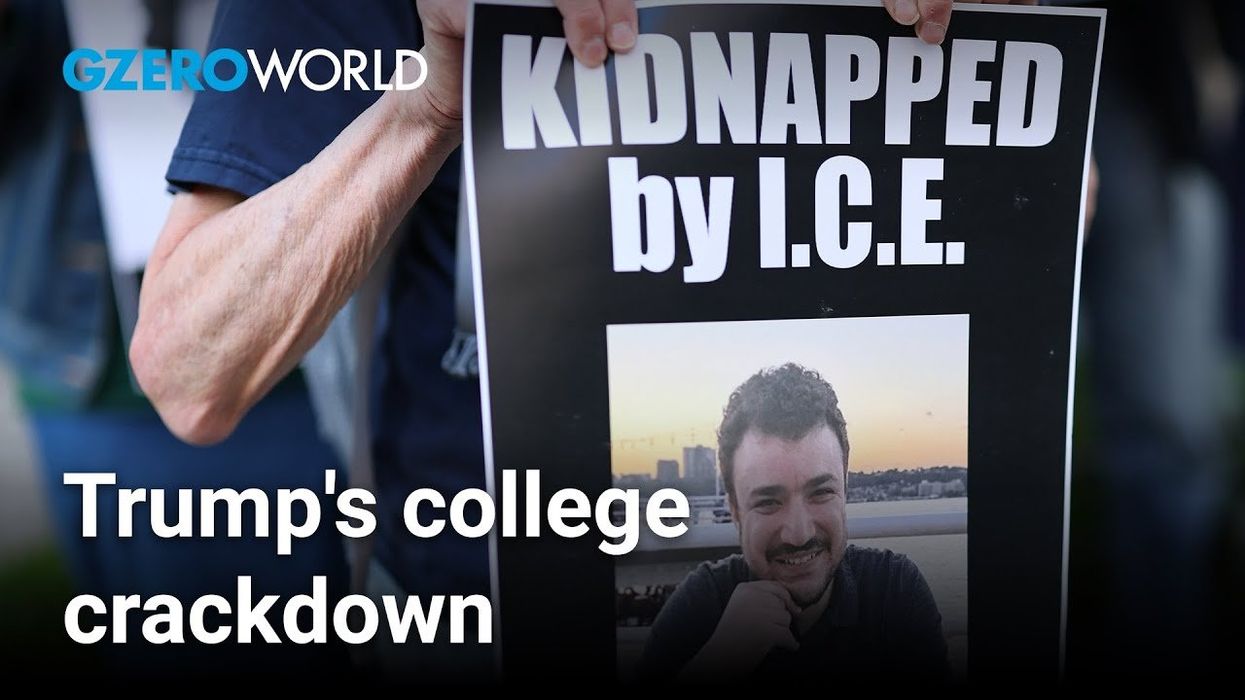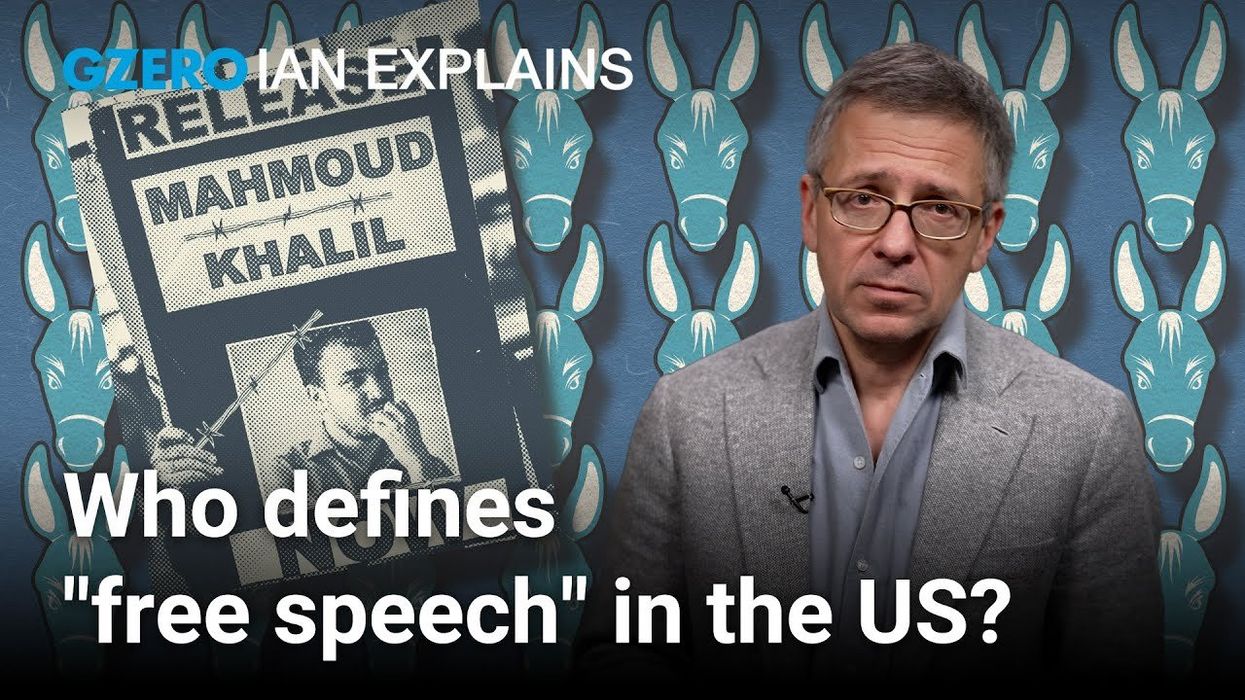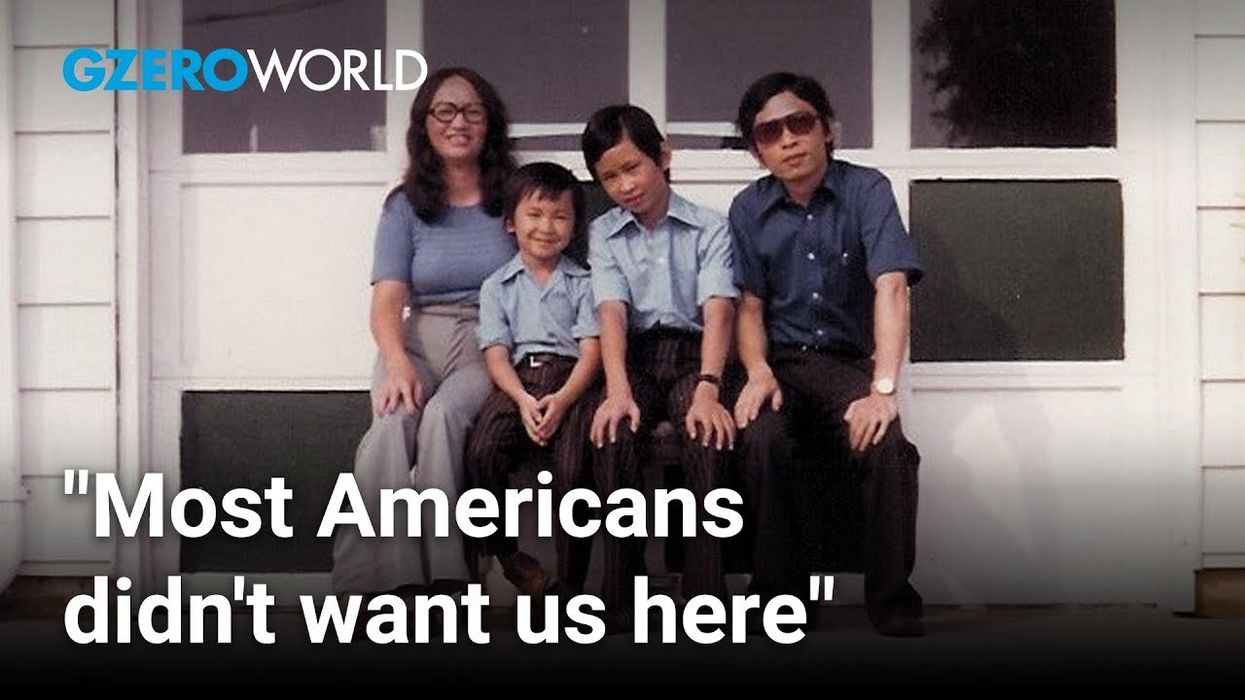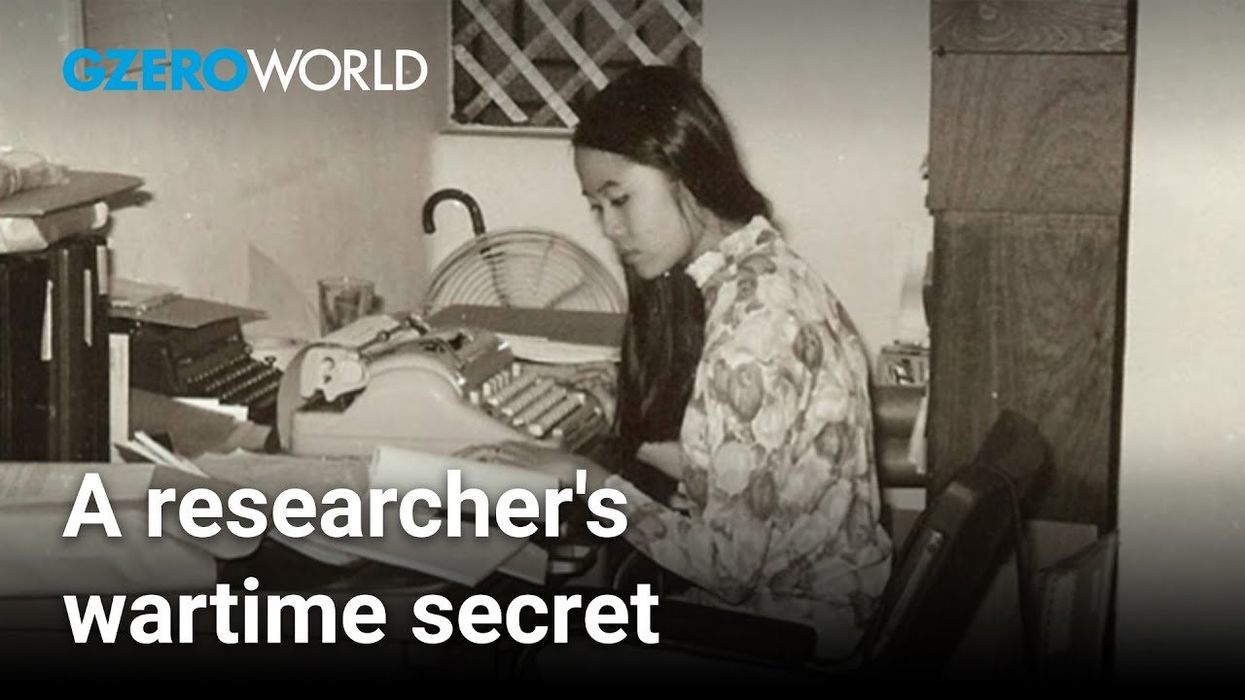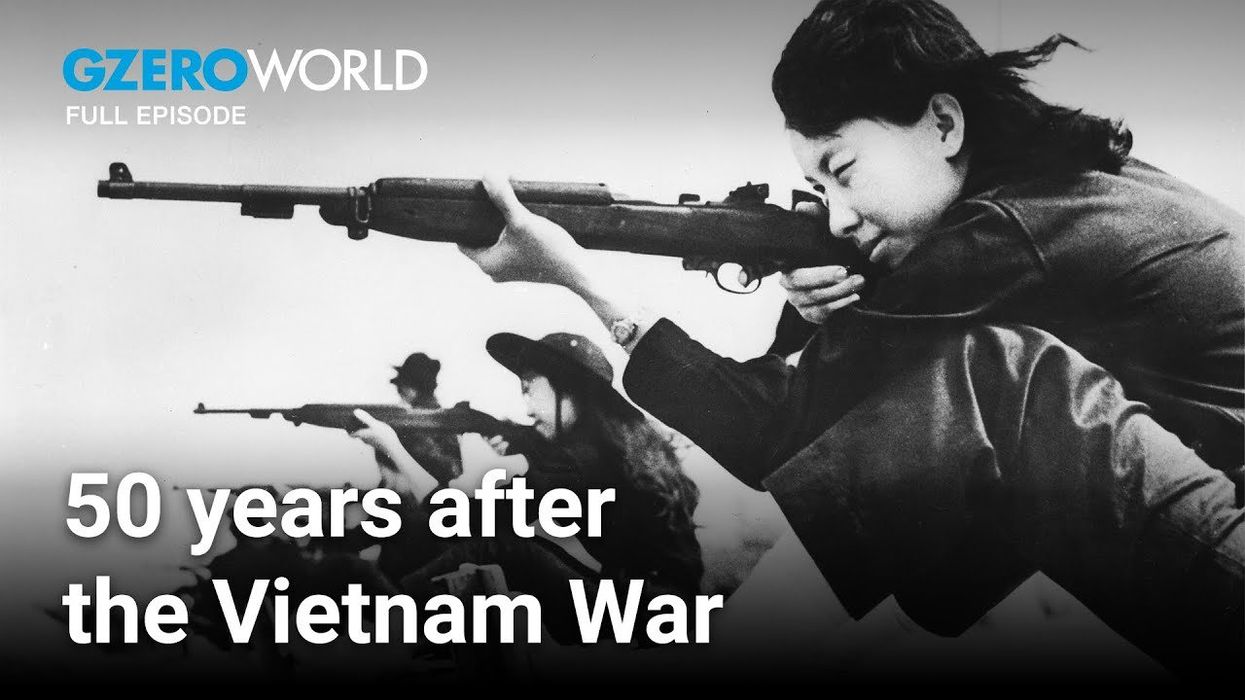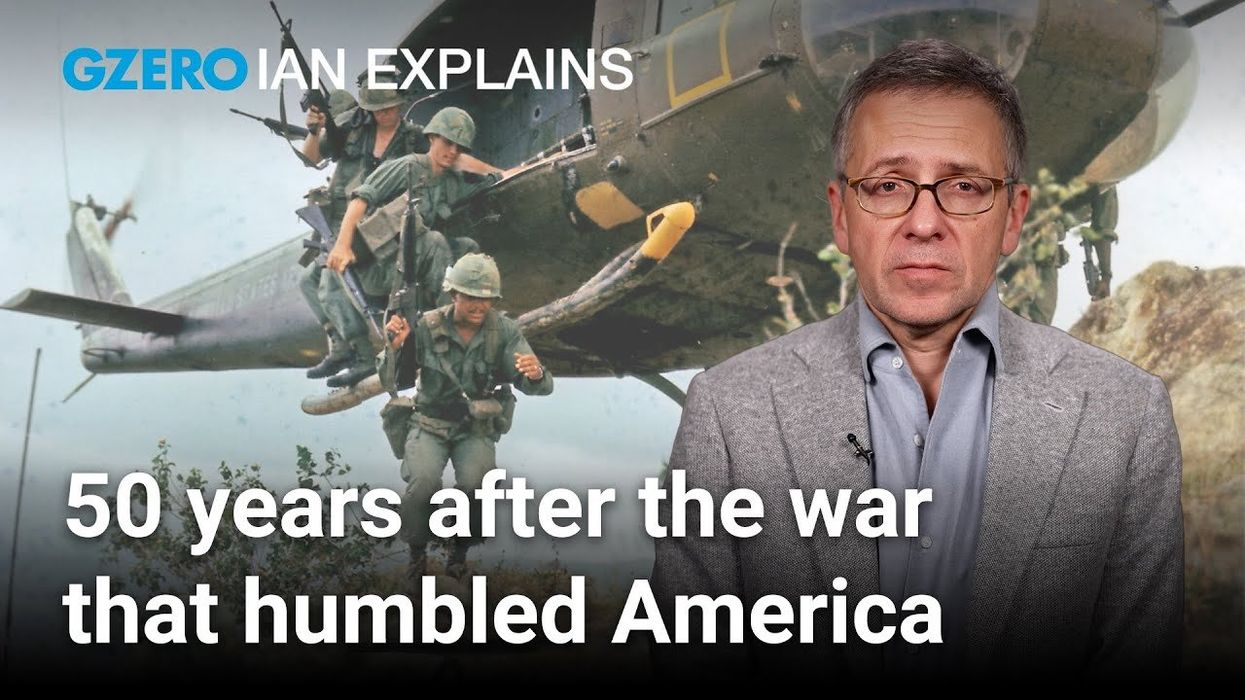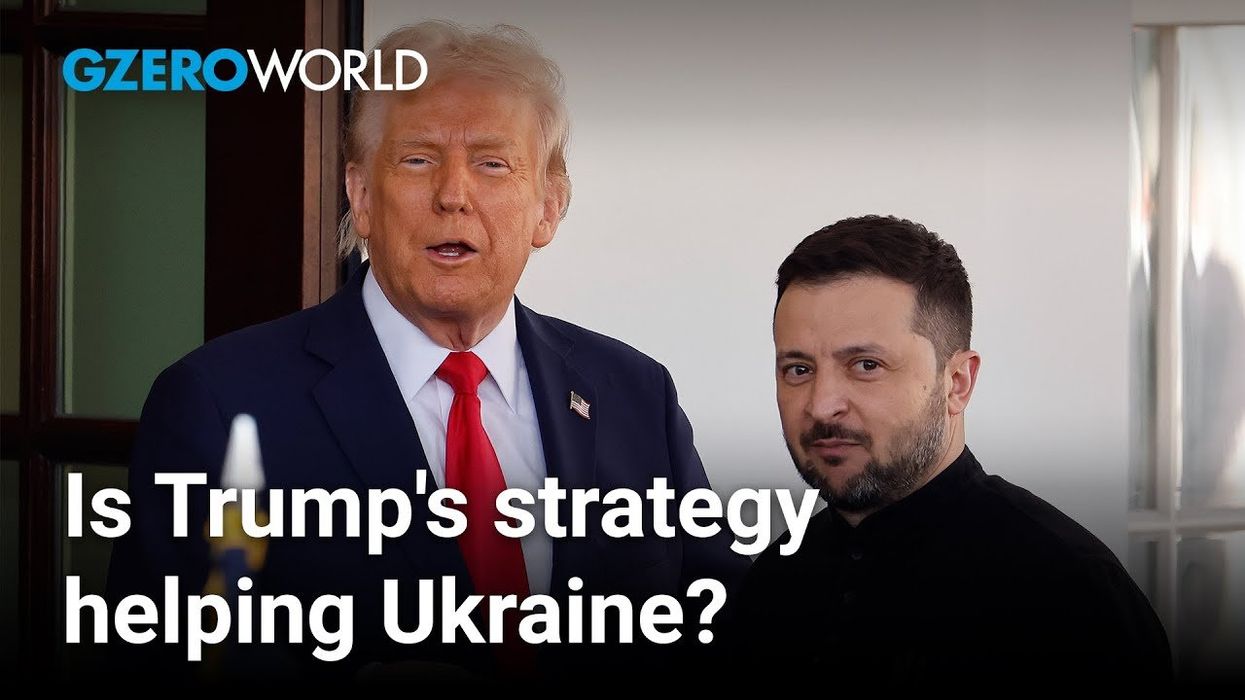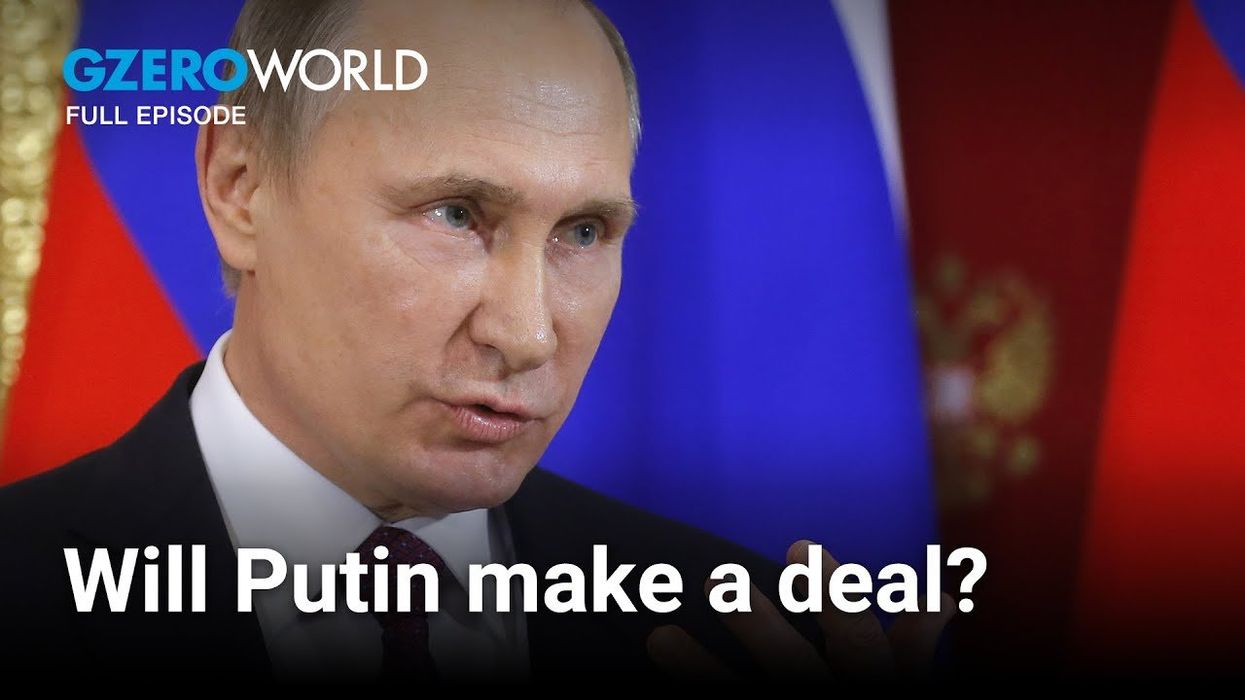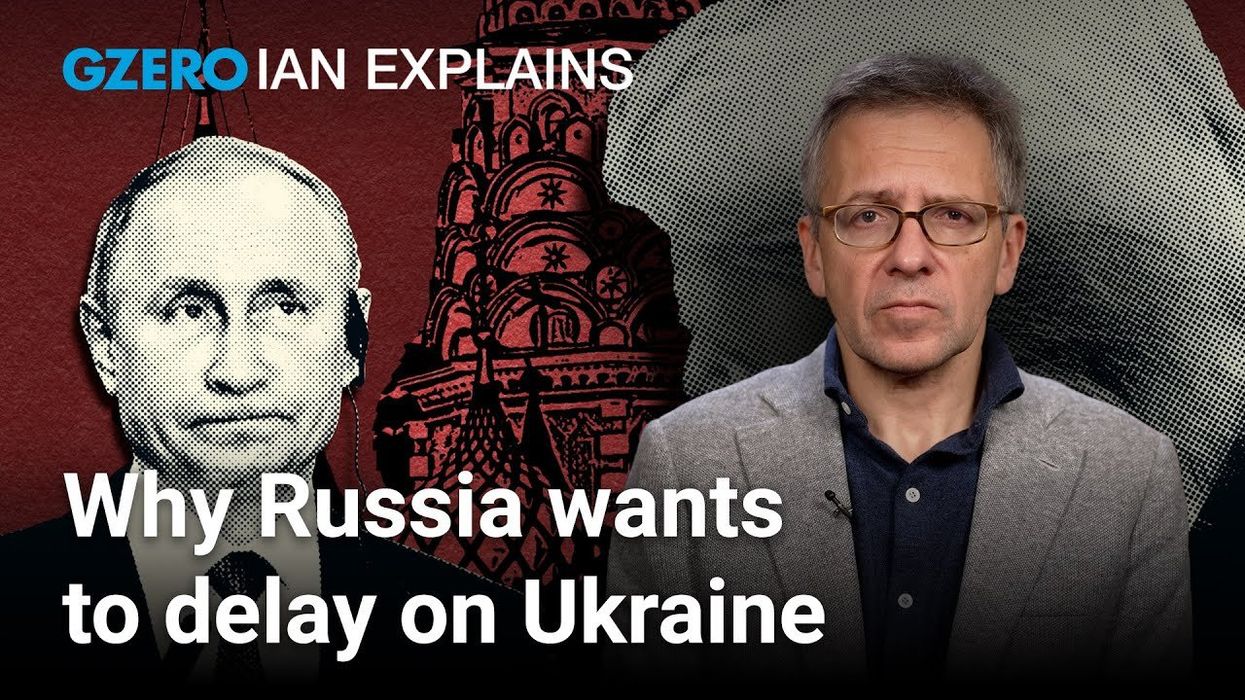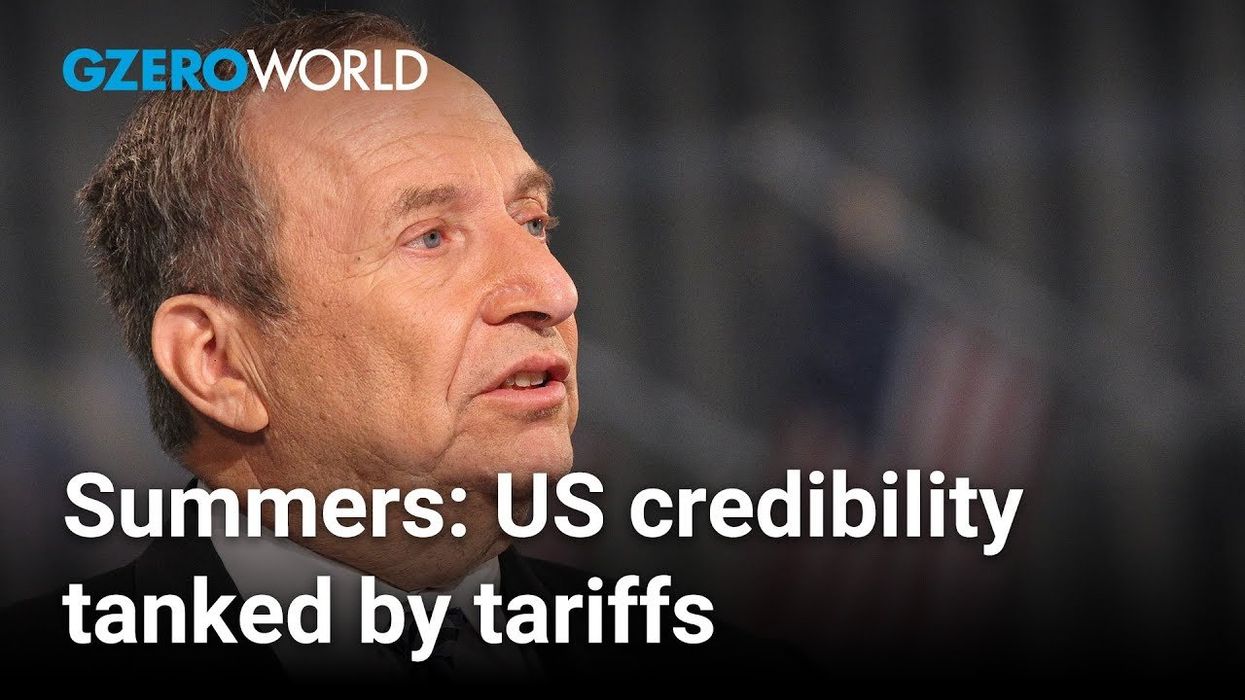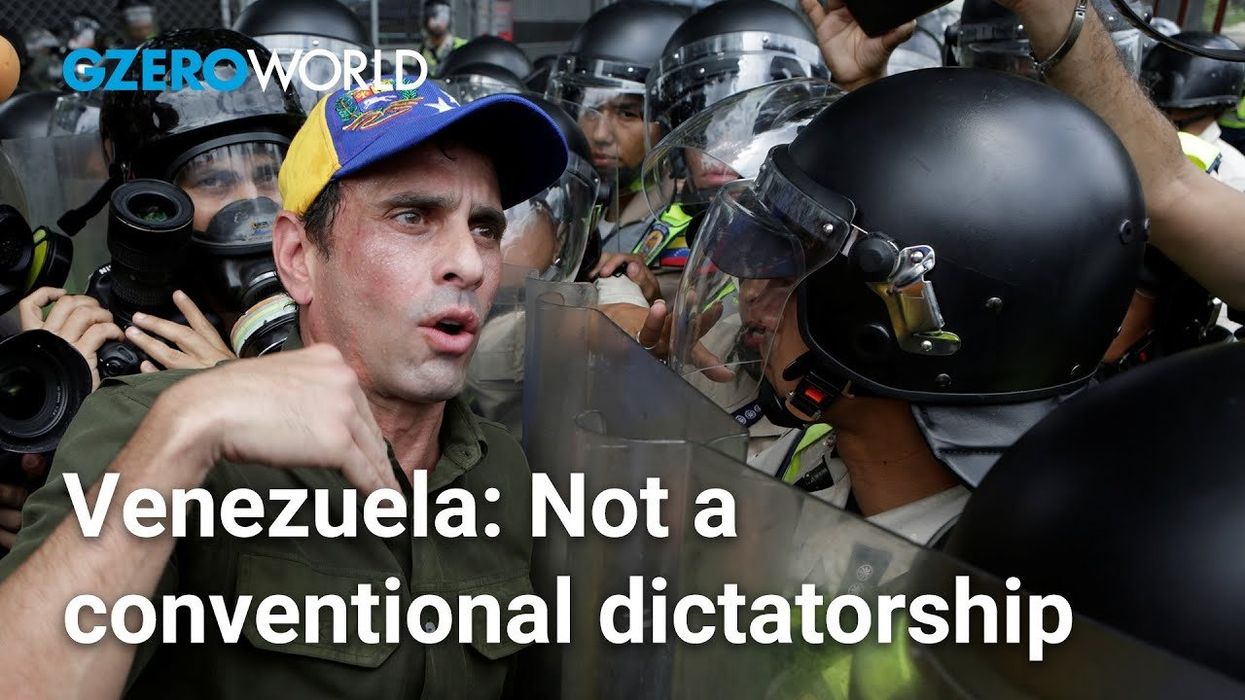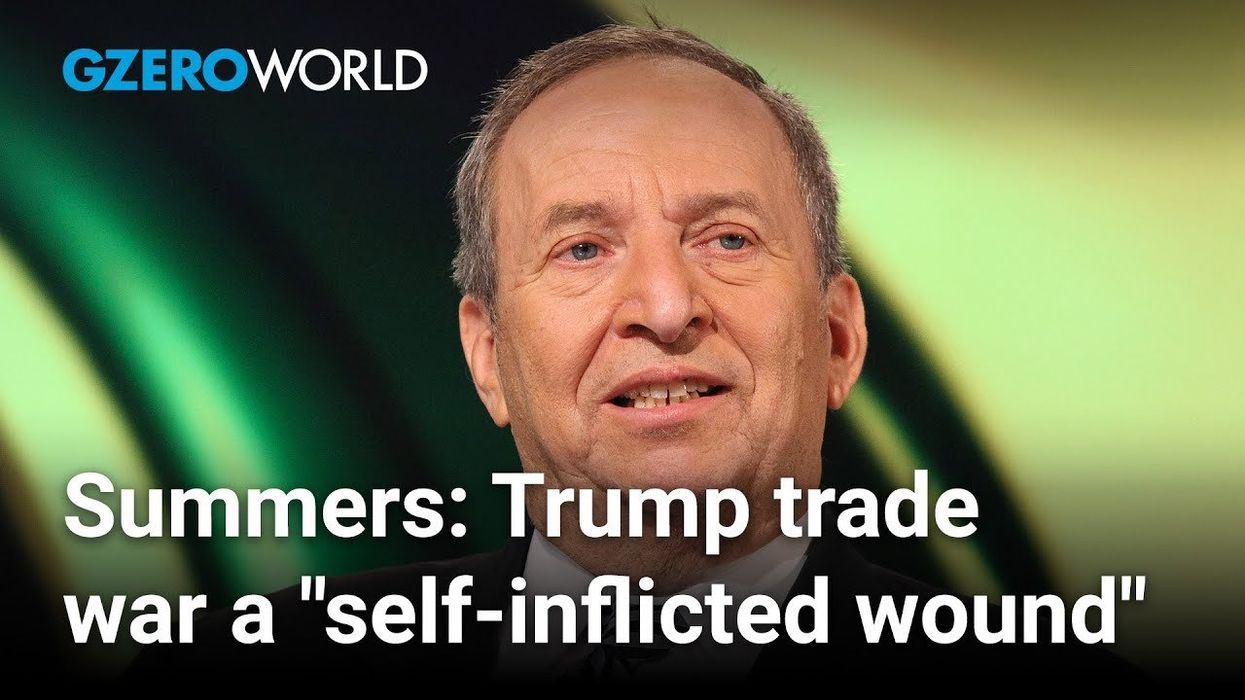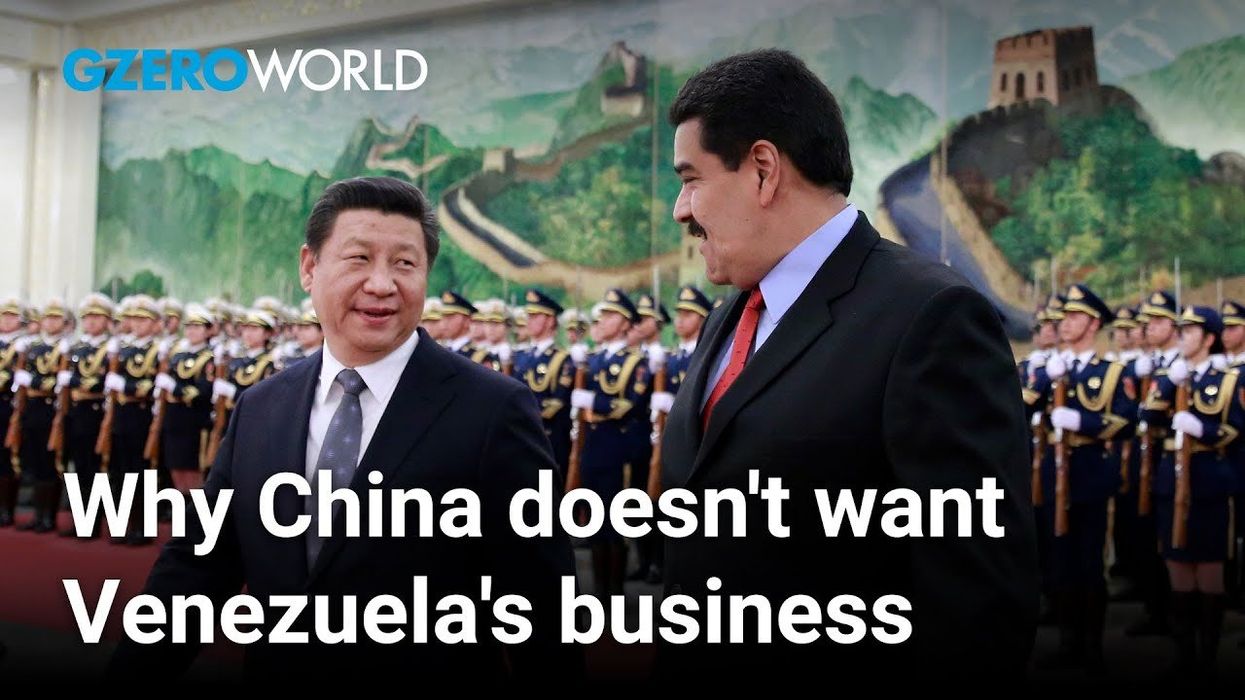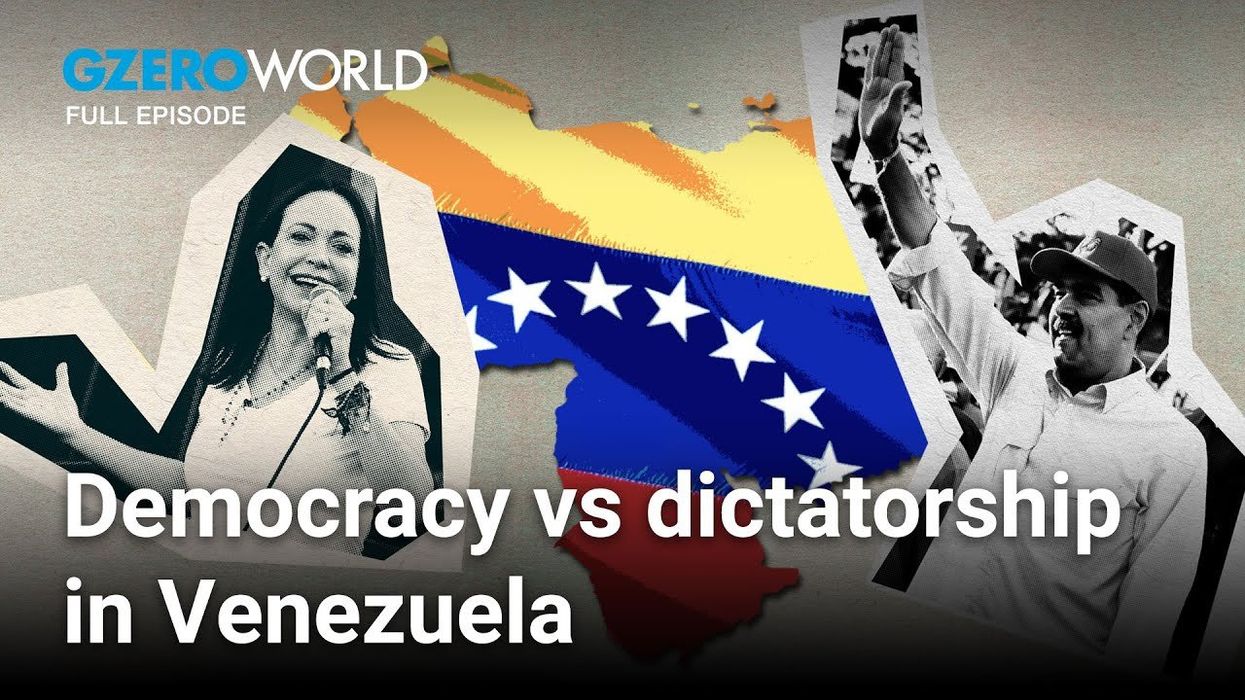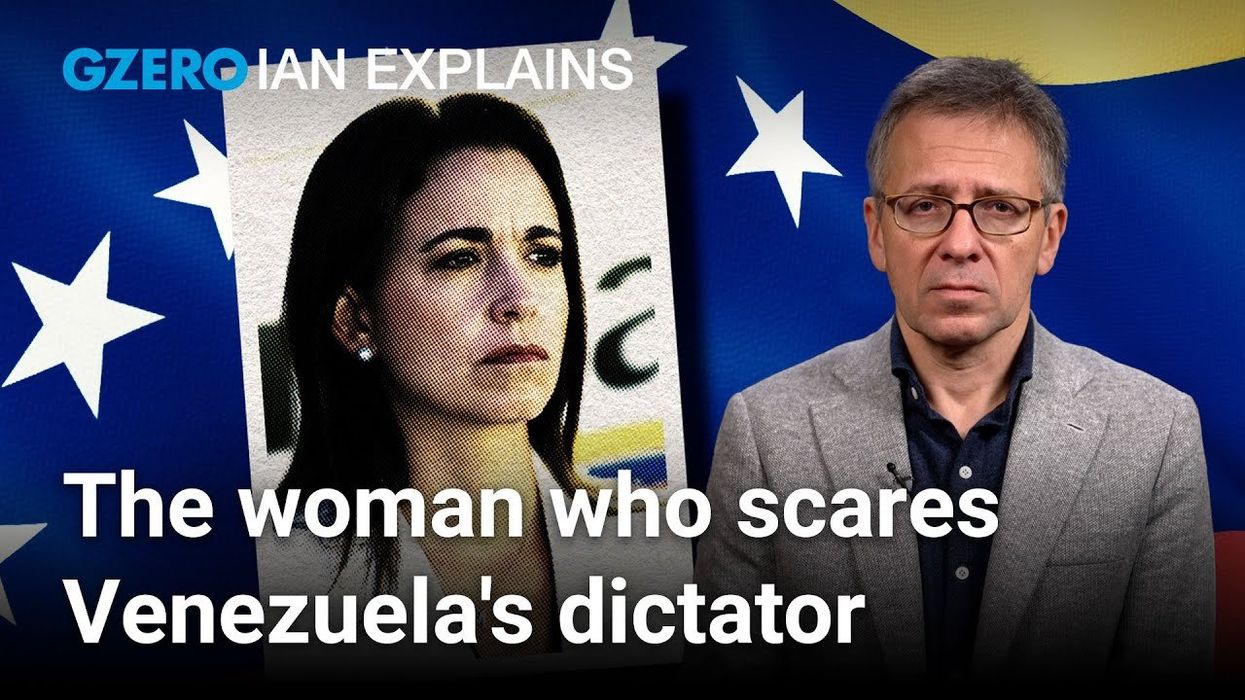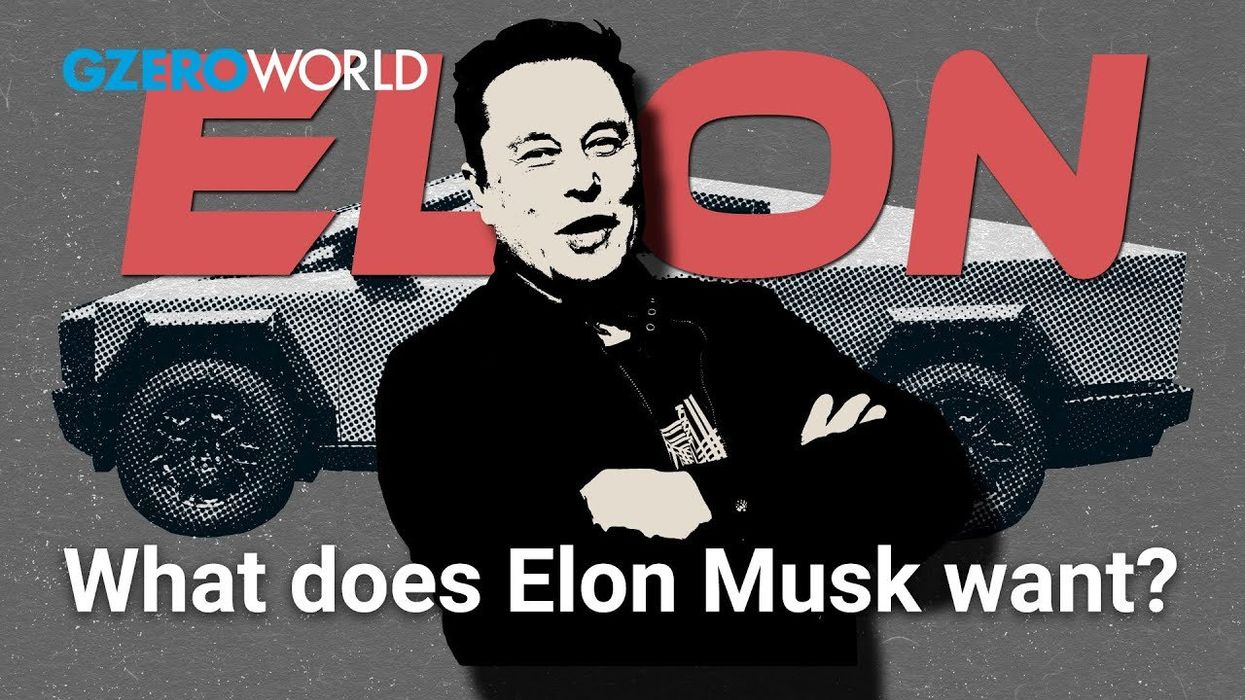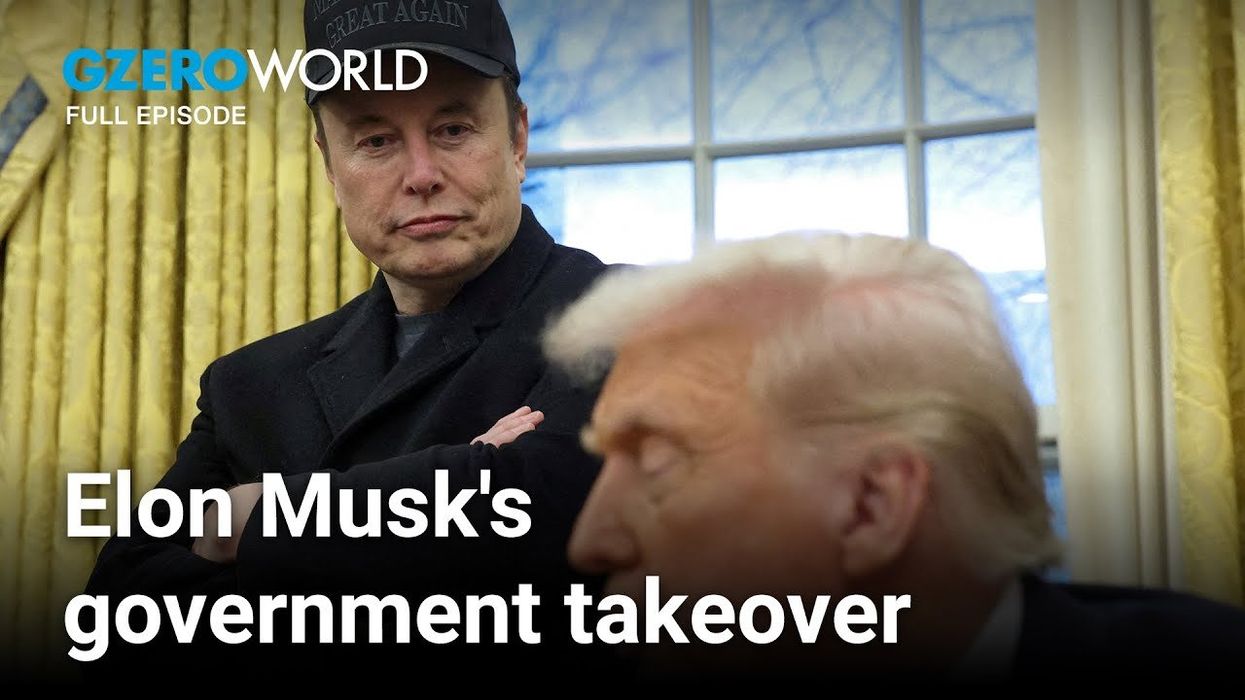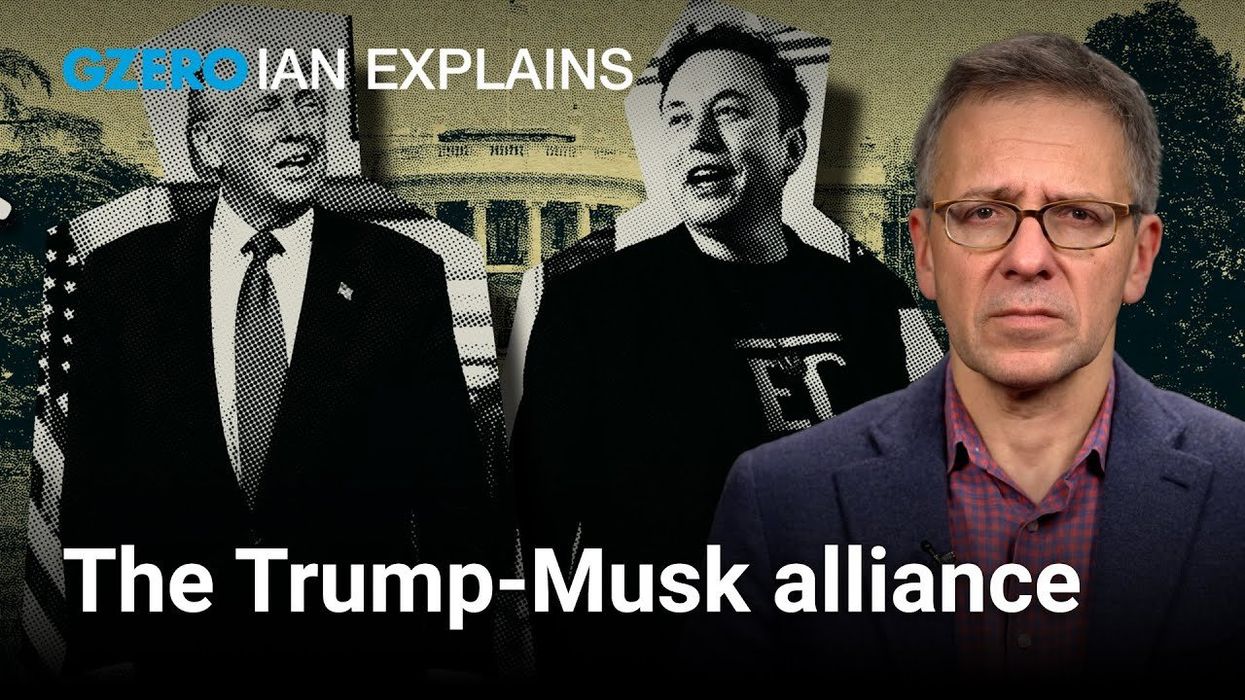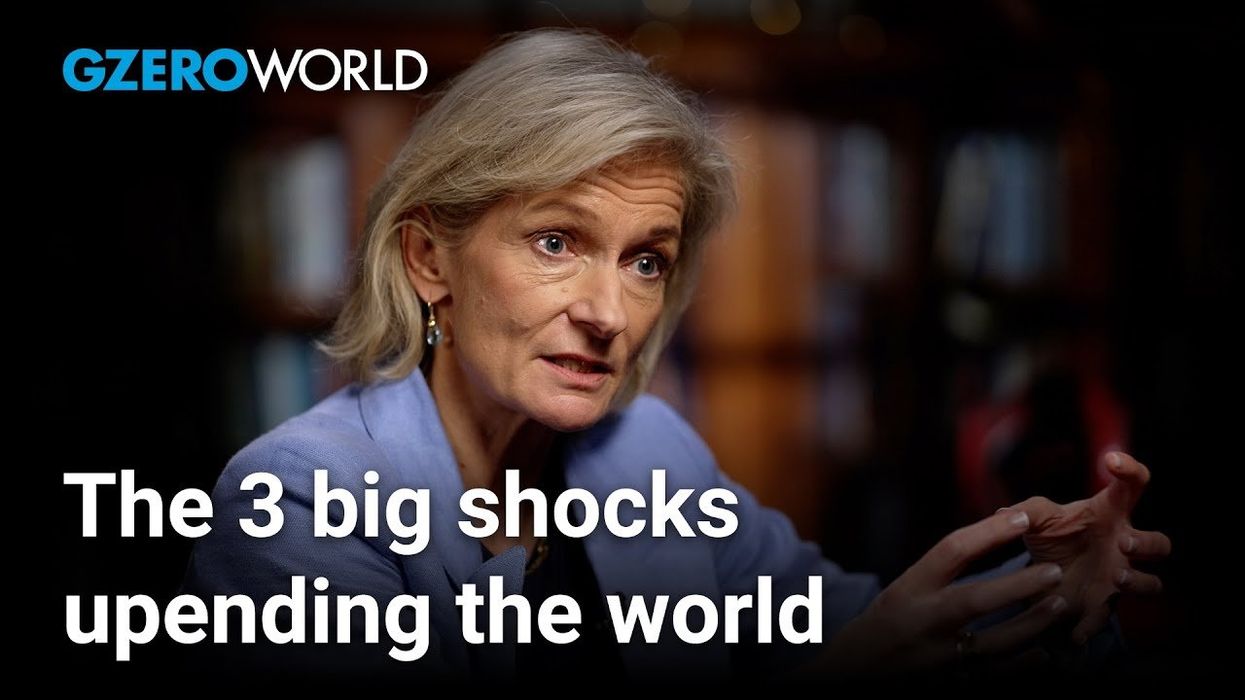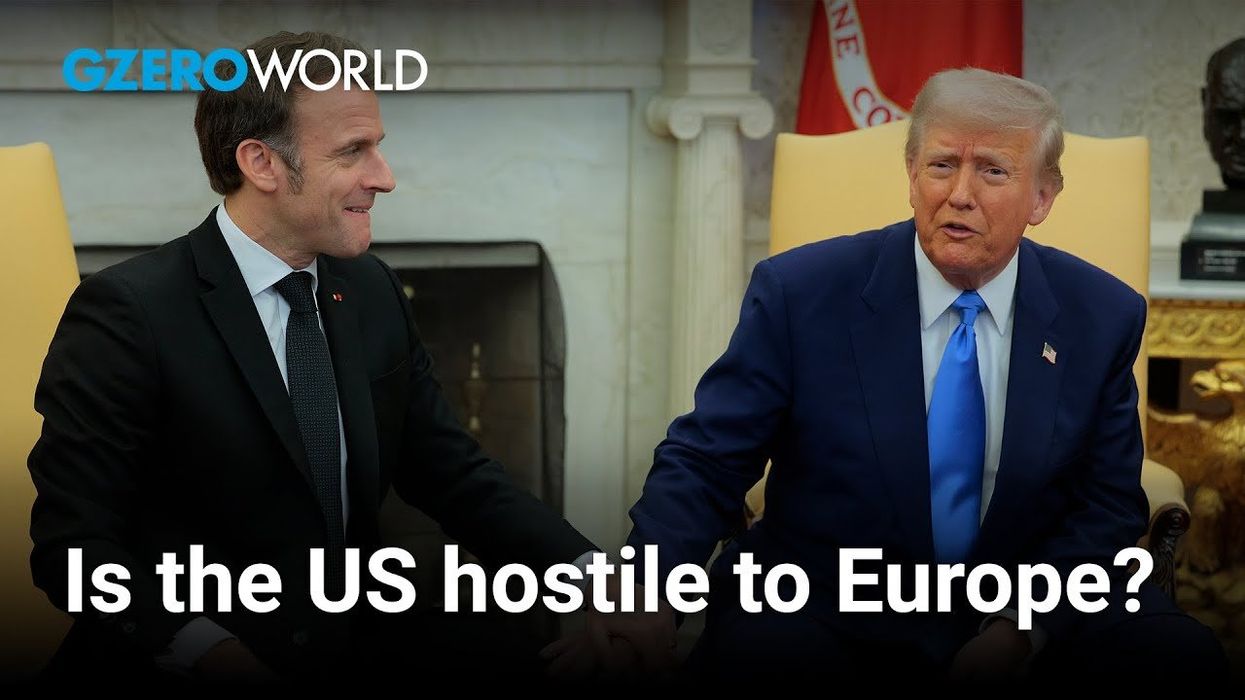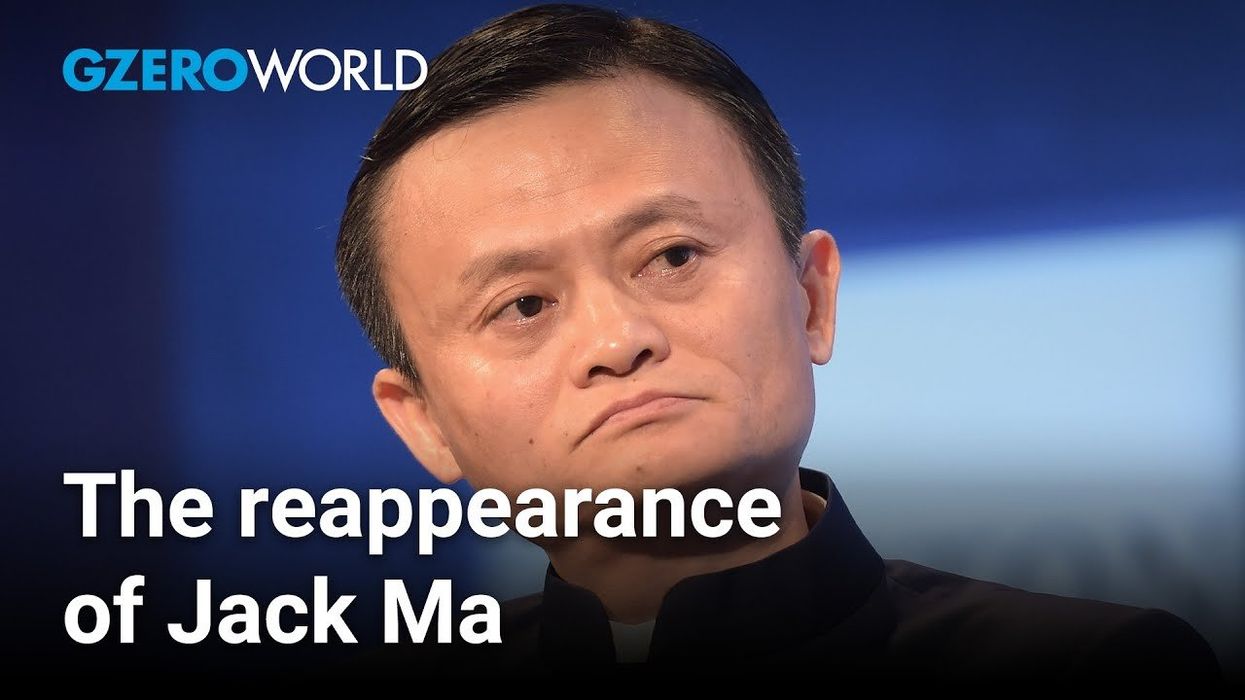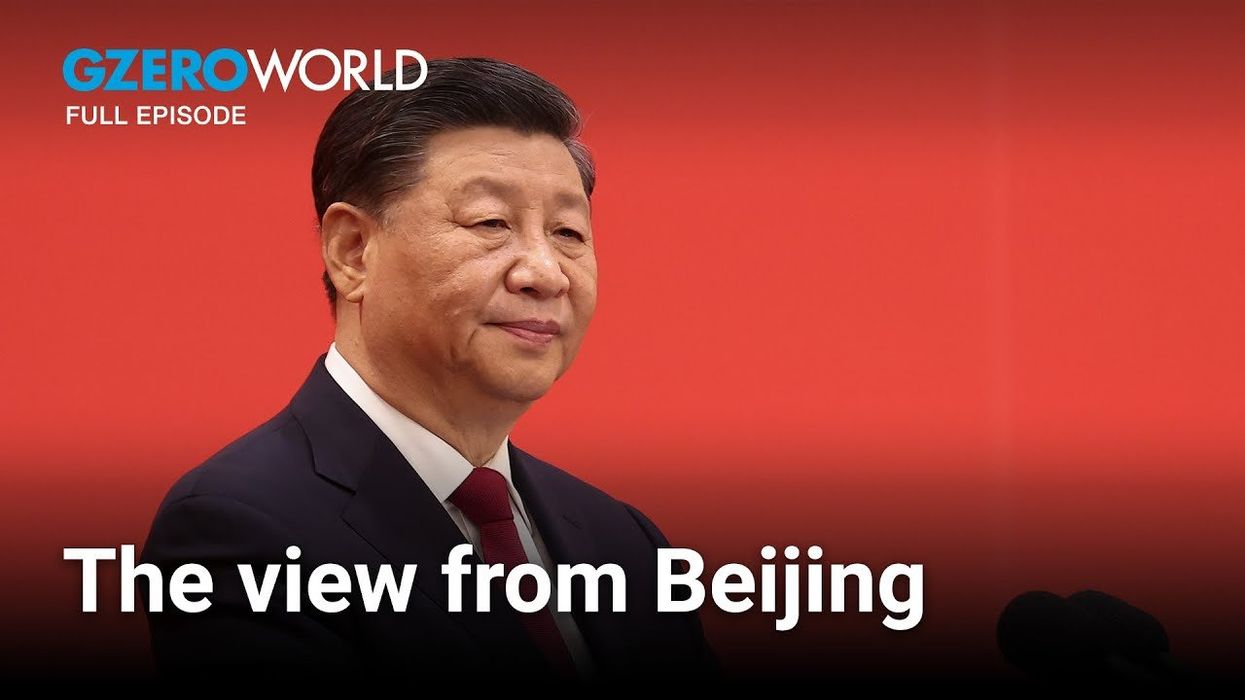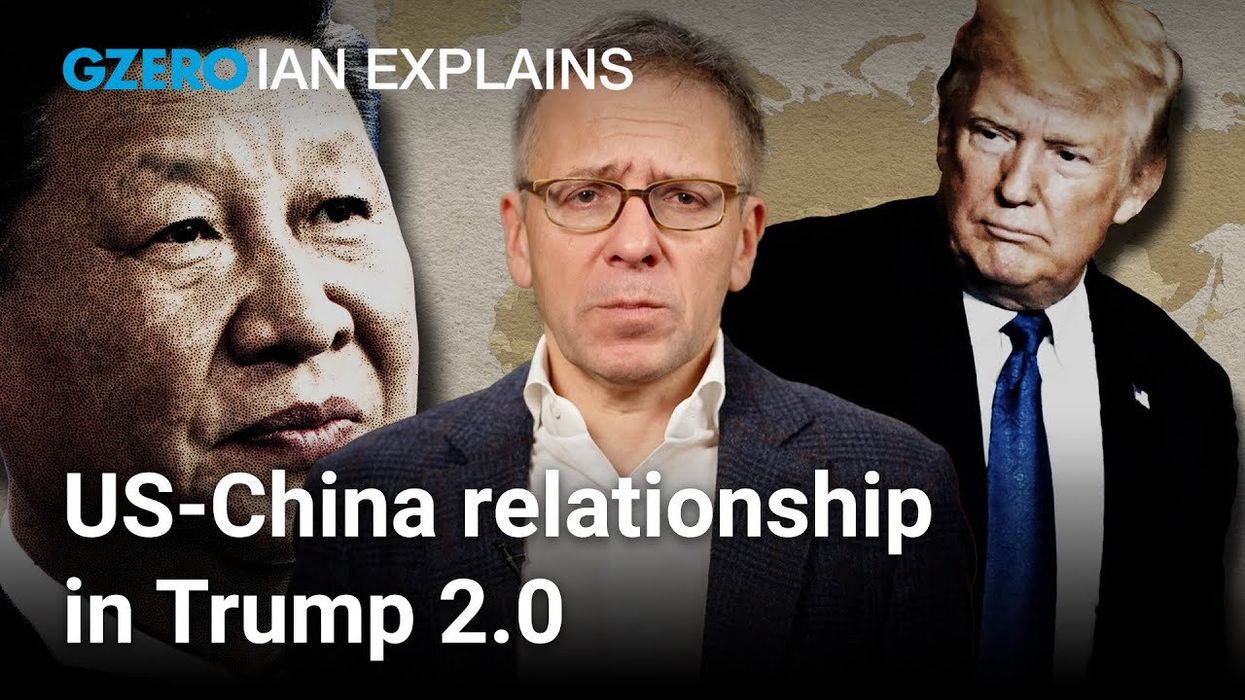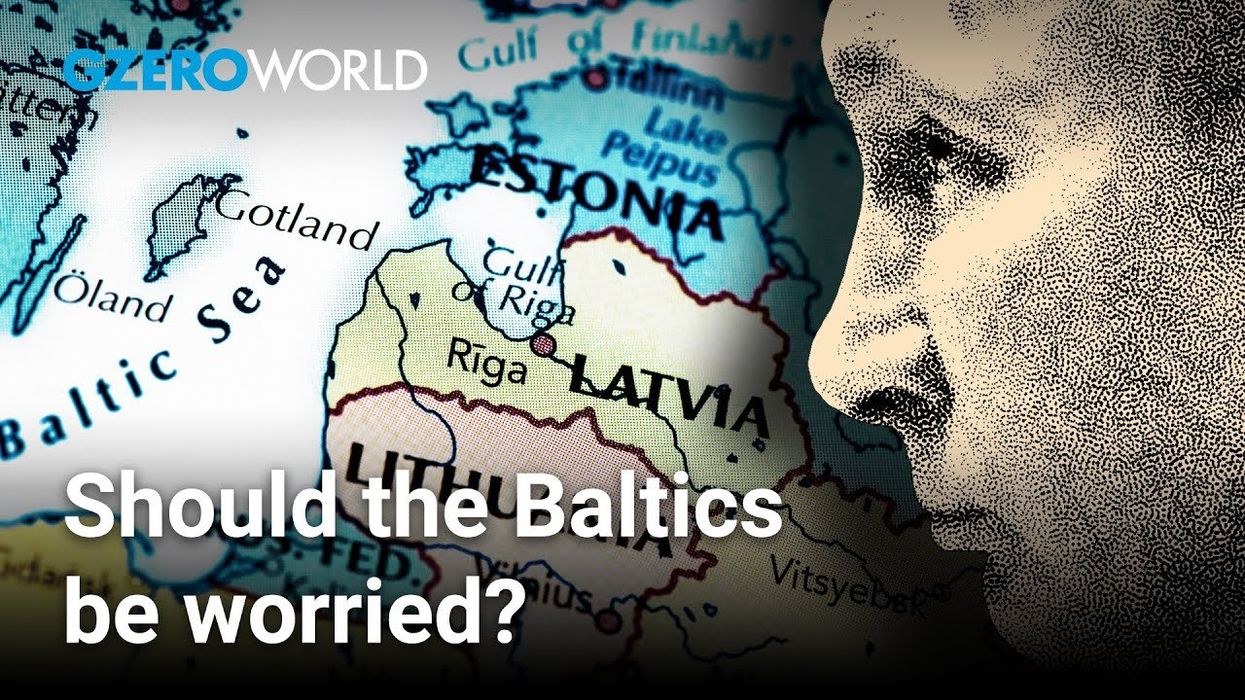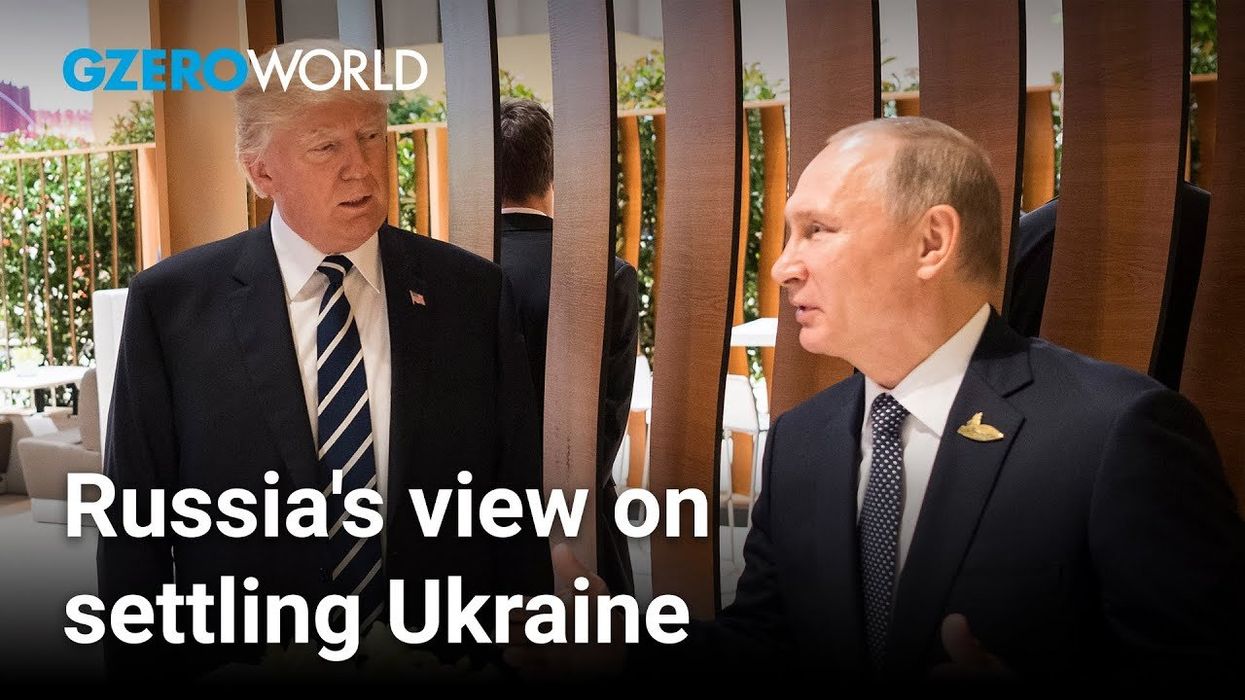VIDEOSGZERO World with Ian BremmerQuick TakePUPPET REGIMEIan ExplainsGZERO ReportsAsk IanGlobal Stage
Site Navigation
Search
Human content,
AI powered search.
Latest Stories
Sign up for GZERO Daily.
Get our latest updates and insights delivered to your inbox.
Global Stage: Live from Munich
WATCH RECORDING
GZERO World Clips
Highlights from the GZERO World with Ian Bremmer weekly television show.
Presented by
UN-Water Chair Gilbert Houngbo remembers being a college student in the late 70s, when people first started saying water should be treated as a public good. Today, we're still having that same conversation, but now, groups like UN-Water are working to make it a reality.
On GZERO World with Ian Bremmer, Houngbo emphasizes the importance of policies that ensure access to basic water services, encourage water reuse, and minimize the risk of pollution. It's easy to think water is free and we don't need to take care of it, says Houngbo, "but this has to stop."
The former Prime Minister of Togo also touches on "the sensitive issue of privatization of water services" and the potential impact it can have on "inequality and efficiency." Well-managed water services are a good thing, Houngbo notes, but privatization shouldn't mean the price of water automatically goes up.
Despite the double-edged sword of privatization, he suggests that it "can be effective if accompanied by government regulations" to ensure that vulnerable populations have access to water and that private companies adhere to quality and safety standards.
Watch the GZERO World episode: The uncomfortable truth about water scarcity
Keep reading...Show less
More from GZERO World Clips
Beyond Gaza and Ukraine: The wars the world is ignoring
December 23, 2025
The state of global conflict in 2025
December 22, 2025
Why the world is becoming more violent than ever
December 19, 2025
Wikipedia's cofounder says the site crossed a line on Gaza
December 16, 2025
In Wikipedia We Trust?
December 15, 2025
Can we still trust Wikipedia?
December 12, 2025
'Godfather of AI' warns of existential risks
December 08, 2025
Will AI replace human workers?
December 05, 2025
Could the US really invade Venezuela?
November 24, 2025
Could the US pull another Panama in Venezuela?
November 21, 2025
Will "AI euphoria" crash the markets?
November 17, 2025
Is the AI bubble about to burst?
November 14, 2025
Is the US falling behind China?
November 10, 2025
What the US can learn from China's infrastructure boom
November 07, 2025
The dangers of unchecked AI
October 27, 2025
Is the future of AI physical?
October 24, 2025
Republicans and Democrats are more divided than ever
October 20, 2025
The state of America's political parties
October 17, 2025
Did Netanyahu got everything he wanted in Gaza peace deal?
October 04, 2025
Putin's drone battle for Ukraine's skies
September 29, 2025
How Russia overtook Ukraine's drone advantage
September 26, 2025
The UN is running out of cash. Can it reform before it's too late?
September 22, 2025
The world is on fire and the UN is running out of money
September 19, 2025
Will the clean energy revolution leave the US behind?
September 15, 2025
How AI is transforming medicine, and the cancer fight
September 07, 2025
The global refugee crisis is at breaking point
August 25, 2025
The broken system behind the refugee crisis
August 22, 2025
Why Pakistan sees China as a "force for stability"
August 18, 2025
India vs. Pakistan: Rising tensions in South Asia
August 16, 2025
Why India and Pakistan can't get along
August 15, 2025
Feldman: Trump is using antisemitism to go after Harvard
August 11, 2025
As Trump pressures universities, what's really at stake?
August 10, 2025
What's at stake in the US-China trade war
August 04, 2025
Are Trump's tariffs the end of the free trade era?
August 02, 2025
Trump's tariffs are already changing global trade
August 01, 2025
Is the US Intelligence community at a breaking point?
July 21, 2025
Sen Warner: Tulsi Gabbard should resign or be fired
July 18, 2025
China's stockpiling nukes. Should we be worried?
July 15, 2025
The dangerous new nuclear arms race
July 14, 2025
Do nuclear weapons make a country safer?
July 11, 2025
Israel, Iran, and the US went to war. Now what happens?
July 05, 2025
President Trump takes on the Judiciary
June 14, 2025
What’s behind Trump & Musk’s public feud?
June 10, 2025
Can Taiwan defend itself from Chinese invasion?
June 10, 2025
Could China invade Taiwan?
June 09, 2025
How China would seize Taiwan without firing a shot
June 06, 2025
Can Pope Leo XIV heal the Church–and his own country?
June 02, 2025
What is artificial general intelligence?
May 16, 2025
Why Sen. Chris Van Hollen stood up to Trump
May 12, 2025
The battle for free speech in Donald Trump's America
May 05, 2025
Growing up as a Vietnamese refugee in 1980s America
April 29, 2025
Life in Saigon during the Vietnam War
April 28, 2025
50 years after the Vietnam War
April 28, 2025
50 Years on, have we learned the Vietnam War's lessons?
April 25, 2025
How Ukraine feels about negotiating with Russia
April 15, 2025
Will Russia agree to a ceasefire in Ukraine?
April 14, 2025
Will Trump pressure Putin for a Ukraine ceasefire?
April 11, 2025
Has China lost patience with Venezuela's Maduro regime?
April 08, 2025
What are Elon Musk's real goals with DOGE?
April 01, 2025
The rise of Elon Musk's DOGE under Trump
March 31, 2025
Will the Trump-Musk relationship last?
March 28, 2025
Trump’s trade war: Who really wins?
March 24, 2025
Did Wall Street get Trump wrong?
March 21, 2025
Why China's Xi Jinping needs Jack Ma
March 18, 2025
China’s next move
March 17, 2025
What is President Trump's stance on China?
March 14, 2025
Could Russia invade the Baltics next?
March 04, 2025
GZERO Series
GZERO Daily: our free newsletter about global politics
Keep up with what’s going on around the world - and why it matters.
